














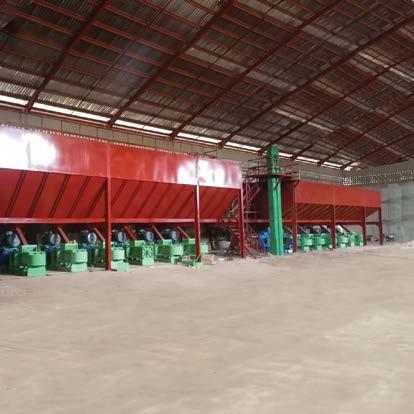





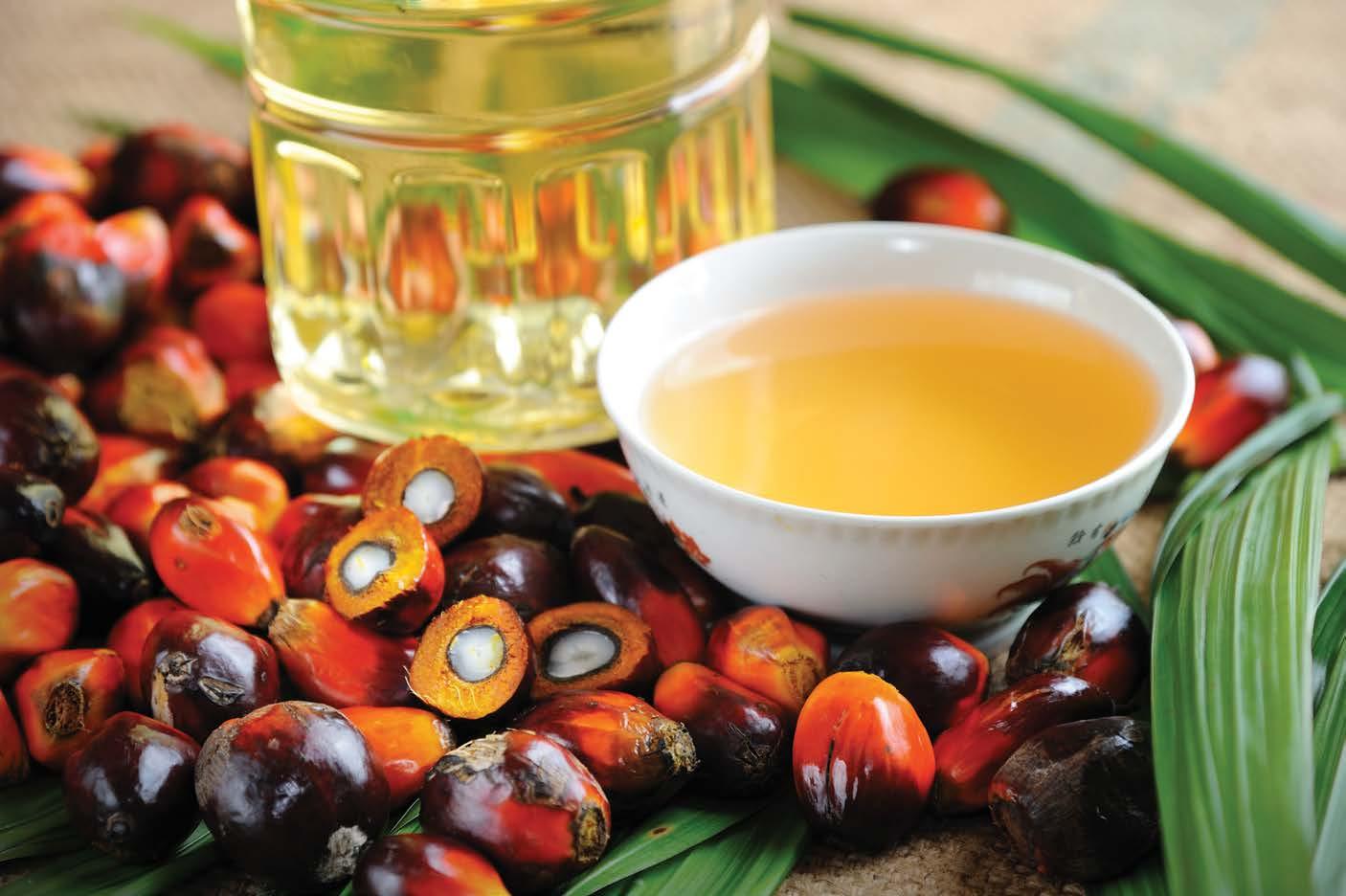

Editor
Deputy Prime Minister Datuk Seri Fadillah Yusof’s official visit to the United Kingdom aimed to address misconceptions and promote the acceptance of MSPO-certified palm oil in the UK market concluded on a positive note, with indications that the UK government is set to recognize the MSPO certification as a sustainable standard for palm oil.
This recognition would be a significant achievement for Malaysia’s palm oil industry, as it would open up opportunities for increased exports of MSPO-certified palm oil to the UK. Malaysia has negotiated with the UK to eliminate tariffs on Malaysian palm oil from the current 12% to zero upon entry into the trade pact
Malaysia is also a member of the UK’s accession to the Comprehensive and Progressive Agreement for Trans-Pacific Partnership (CPTPP), which is expected in a few months. This will be Malaysia’s first trade deal with the UK. This can be seen as a good stepping stone as it would open up more business opportunities between Malaysia and the UK.
On behalf of the editorial team, thank you for your continuous support of Palm Oil Today Africa magazine. Stay in touch with us at www.africapalmoil.com and follow us on Facebook and LinkedIn for more updates.


PUBLISHER
FBI Publications (M) Sdn. Bhd.
PUBLICATION MANAGER
Vanny Lim vanny@asiafbi.com

MARKETING COMMUNICATION
Nur Izyan binti Dzulkifli izyandzul@asiafbi.com
ASSISTANT EDITOR
Atthira Zawana atthirazawana@asiafbi.com

CREATIVE DESIGNER
Muhammad Fadzil design@asiafbi.com
BOARD OF DIRECTORS
Kenny Yong
Susan Tricia
OFFICIAL MAGAZINE OF
JOINTLY PUBLISHED BY
FBI PUBLICATIONS (M) SDN BHD (1168942-P)

Unit 9-3, Jalan PJU 5/6, Dataran Sunway, Kota Damansara, 47810 Petaling Jaya, Selangor.
Tel: (+603) 5636 1952
ZENITH EXHIBITIONS LTD

Lagos, Nigeria, NG Tel: +234 809 115 5699

PRINTED BY
MMS PRINT SHOP (M) SDN. BHD. No 43G, Jalan PBS 14/2, Taman Perindustrian Bukit Serdang, 43300 Seri Kembangan, Selango.
ENDORSED & SUPPORTED BY
Palm Oil Today Africa | Jul-Sept 2023 4
Editor's Message
Susan Tricia




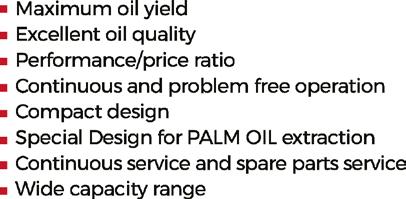


Green Afro-Palms Addresses Yield Gap to Help Smallholder Farmers Unlock Potential of Palm Oil in Ghana

8. Green Afro-Palms Addresses Yield Gap to Help Smallholder Farmers Unlock Potential of Palm Oil in Ghana
12. Exploration of Palm Oil Will Increase Sector’s GDP – Expert
13. Indonesia Mulls Diverting Palm Oil Exports to Africa Over
14. Palm Oil Imports from Malaysia Surges 353% In 4 Months
24. Palm Oil Industry Players Urged to Act Together to Improve Workers’ Welfare
25. MPOC: ‘No Palm Oil’ Labels Are Illegal and Violate Malaysian Law
26. Palm Oil Mission Concludes on High Note with UK Set to Recognize MSPO
24. Rethink Palm Oil Export Sanctions
29. Soludo Imports Two Million Malaysian Palm Oil Seedlings, Coconuts; Targets N160 Billion Yearly Profit
16. MPOB: Mechanisation Rate in Palm Oil Plantations Still Low
17. CPOPC Aims 93% Of World’s Palm Oil Producing Countries to Become Members by Next Year
18. MPOB: EUDR Will Not Affect Palm Oil Growth, Revenue
20. First Smallholders to Get Roundtable on Sustainable Palm Oil Cert
22 MPOC: Palm Oil Industry Can Lead in Sustainable Agriculture Practice
32. Sabah To Come Up with Policy on Oil Palm Biomass
34 Hot, Dry Weather Cuts Palm Oil Yields in Malaysia’s Top Producing State
36 Govt Will Ensure Smallholders Are Not Left Out of Palm Oil Supply Chain, Says DPM Fadillah
37 Indonesia Urges Importers to Back Sustainable Palm Oil, Not Boycotts
38. Indonesia and Malaysia Seek to Soften EU Palm Oil Stance
Palm Oil Today Africa | Jul-Sept 2023 6
Industry
Volume 1 | No. 2 | Jul-Sept 2023
Organization News International News
News CONTENTS
8
Agrico
in
Green Solutions
39. Sustainability Standards, Governments Must Do More for Palm Oil Producers
Refinery News
40. Agrico Qatar Interested in Crude Palm Oil Supply from M’sia - PM
42. Novozymes’ Latest Biosolution, Lipura® Split, Enables Fatty Acid Producers to Increase Efficiency and Boost Sustainability in the Fat Splitting Process
Special Insight
44. Oil Palm and Deforestation: Malaysia Cannot Be Considered A ‘High-Risk’ Country

Overview on Africa’s Palm Oil Industry with Alphonsus Inyang, the President of The National Palm Produce Association of Nigeria (NPPAN)
Cover Story
50. Overview on Africa’s Palm Oil Industry with Alphonsus Inyang, the President of The National Palm Produce Association of Nigeria (NPPAN)
Event Highlights
54. The European Commission, Indonesia, and Malaysia Agree to Set up a Joint Task Force to Strengthen the Cooperation for the Implementation of EU’s Deforestation Regulation
46. Ensuring Sustainability in Edo State’s Palm Oil Development: Interview with Churchill Ebehitale Oboh, the Team Lead of Edo State Oil Palm Programme Independent Implementation Office (ESOPP IIO)

Ensuring Sustainability in Edo State’s Palm Oil Development: Interview with Churchill Ebehitale Oboh, the Team Lead of Edo State Oil Palm Programme Independent Implementation Office (ESOPP IIO)

Jul-Sept 2023 | Palm Oil Today Africa 7
In The Hot Seat
48 40 52
Qatar Interested
Crude Palm Oil Supply from M’sia - PM
Green Afro-Palms Addresses Yield Gap to Help Smallholder Farmers Unlock Potential of Palm Oil in Ghana

As the most widely used vegetable oil in the world, palm oil or a component of it is used in 70-80% of food items. Its usage is also high in the cosmetic industry.
Despite the high demand, most smallholder palm oil farmers in West Africa are a dejected lot. West Africa, the epicenter of palm oil production in the 1960, has long lost its allure in favor of Malaysia and Indonesia. The two Asian countries now account for 85% of the world’s palm oil supply, with clients including some of the world’s biggest brands.
In Ghana, hundreds of smallholder farmers have given up on palm oil farming and instead opted to give up their lands to artisanal and small-scale illegal gold mining activities.
It is estimated that in Africa, the palm oil market is worth about $30 billion, while in Ghana, the third biggest producer in West Africa after Nigeria and Côte d’Ivoire, it is worth about $600 million.
Why palm oil farmers switched to illegal mining
As a young mining engineer in 2015, Ababio Kwame had a first-hand experience with farmers giving up palm oil farming for illegal mining.
The impacts were destruction of otherwise productive lands, food insecurity, destruction of water bodies particularly rivers and streams that sustain rural households, deforestation, health risks and entrenching poverty.
“Giving up farms for illegal mining has had devastating impacts on communities,” says Kwame, the founder of Green Afro-Palms, an agritech startup that is spearheading positive transformation of the palm oil value chain in Ghana.
Lack of processing technology
Instead of ignoring the problem, Kwame decided to understand why farmers were giving up on the crop, coming to the realization
Palm Oil Today Africa | Jul-Sept 2023 8
INDUSTRY NEWS
Image credit: Green Afro-Palms
that for the smallholder farmers who account for 80% of palm oil production, the main problem was lack of processing technology.
For the majority of the farmers, dependence on menial methods, particularly the use of hands to crush the palm oil fruits to extract the oil was not only cumbersome, it also led to substantial losses. Farmers were only able to extract 10% to 13% of the oil compared to a maximum rate of 23%.
To a large extent, this explains why Ghana has failed to unleash the full potential of its palm oil industry. The government reckons the crop has the ability to rake in $134 million annually from exports. Yet, it only managed to generate a paltry $6.4 million in 2021.
Data show that palm oil production in Ghana for the 2022/23 marketing year is forecast at only 300,000 metric tons compared to 600,000 metric tons in Côte d’Ivoire.
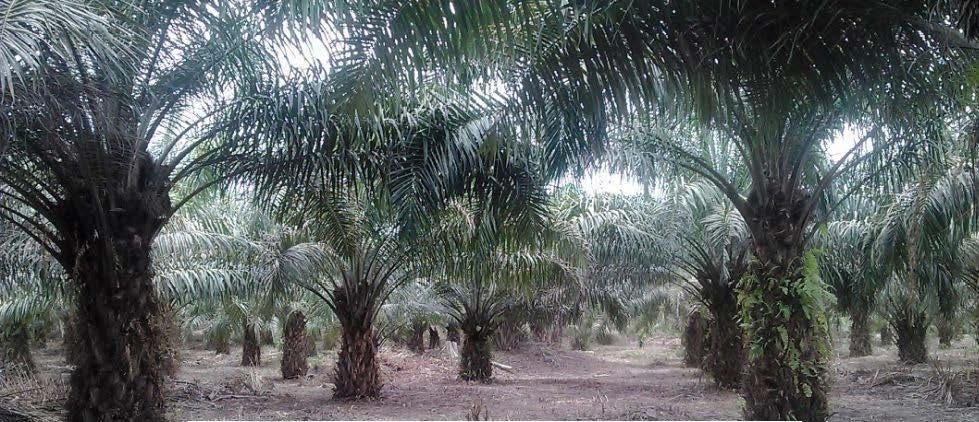
Though Ghana has over 1 million hectares zoned for oil palm cultivation, the harvested area in 2022/23 is forecast at 360,000 hectares compared to 300,000 in Côte d’Ivoire, while yields in Ghana are forecast at 0.83 tons per hectare compared to 2 tons per hectare in Côte d’Ivoire.
Notably, the availability of processing mills in Côte d’Ivoire is the main factor behind the high yields.
“At Green Afro-Palms, we came in to provide processing technology solutions to enable farmers to process up to 20% of the palm oil inside the fruit,” explains Kwame, adding that the solution is encouraging more farmers to revert to palm oil farming as a profitable enterprise.
Green Afro-Palms: Higher yields, higher returns for farmers
Green Afro-Palms has built a simple processing technology that is able to run on solar energy and which is planted closer to smallholder farmers.
Using the technology, the startup partners with farmers by purchasing their produce, undertaking the processing to extract the oil and supplying to the consumer market.
Over the past eight years, Green Afro-Palms has worked with over 1,000 farmers and processed over 1.8 million liters of palm oil that has been supplied to the consumer market in Ghana and across west Africa.
By purchasing the raw crop and processing it for farmers, Green Afro-Palms enables farmers across 35 farming towns in Ghana to earn three times more compared to what they made selling processed palm oil to middlemen after undertaking the burdensome task of manual processing themselves.
“Our model enables farmers to get income, access to markets and prevents them from giving their lands for use in illegal mining,” states Kwame.
Award-winner
Green Afro-Palms’ sustainable agribusiness model driven by entrepreneurship, innovation and a desire for social change has saved 1.2 million trees, with the ripple impacts being saving water bodies, containing deforestation and ultimately helping in climate change mitigation and adaptation, claims the startup.
Jul-Sept 2023 | Palm Oil Today Africa 9
Image credit: Green Afro-Palms
Owing to its sustainable model, Green Afro-Palms emerged as the overall winner of the inaugural Sankalp West Africa Summit Awards.
The event brought together over 300 change-makers, investors and entrepreneurs to discuss sustainable development in West Africa cutting across agriculture, climate change, circular economy, financial inclusion, energy, gender and livelihood among others.
Nigerian startup Kitovu Technology, which is focused on building climate-smart farming and post-harvest infrastructure, was the runner up, while ShaQ Express, a Ghanaian tech firm addressing the evolving needs and challenges in the e-commerce and logistics industry, was the second runner up.
Pad-Up Creations from Nigeria, a circular economy startup that manufactures and produces washable and reusable sanitary pads as a sustainable solution for women and girls in Africa, scooped the fourth winner dubbed the ‘Sankalp Ecosystem Award’.
Scaling up operations
“Winning the award was an endorsement for the work that we do,” says Kwame. He adds that considering there are about 30,000 smallholder farmers across west Africa who are into oil palm cultivation, the award was an endorsement for the firm to reach many more farmers, ultimately helping ensure that Africa regains its important role in the global palm oil trade economy.
Statistics show that Asia imported 58.4% of all internationally traded palm oil in 2022 with Europe taking 20.9% and Africa importing 13.3%. Other continents account for the remaining 7.4%. India and China are the largest importers at 19% and 15% of global total respectively.
The rising demand for palm oil means significant opportunities abound for Ghana to increase production, exports and earnings. For this reason, Green Afro-Palm is determined to scale up operations. Over the next three years, the startup that has mainly been financing its operations through equity from the cofounders and grants, is looking to raise $500,000.
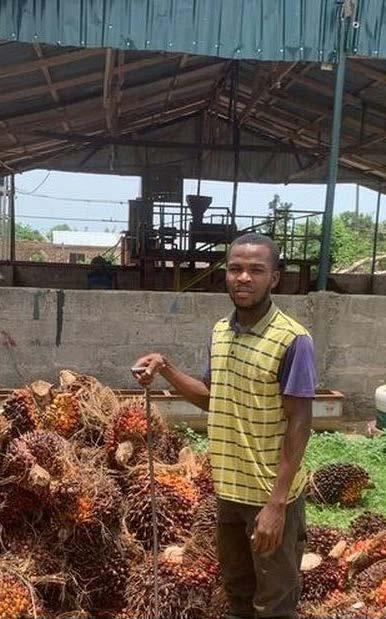
The funds will enable it to invest in more processing technologies, a development that will enable it to reach an additional 1,000 farmers and process 9.2 million liters.
During the period, the startup aims to have a presence in at least 50 towns in Ghana besides expanding into the Nigerian market. “This will mean having a bigger impact in three years compared to the eight years it has taken us to be where we are today,” says Kwame.
“The Sankalp West Africa Awards 2023 has truly been an enriching experience when it comes to meeting hundreds of impact enterprises whose business promise and potential is crucial to solving economic and development challenges in the region,” said Arielle Molino, Sankalp Lead and AVP Intellecap Africa.
He adds that financing has been the key challenge for the startup, something that is curtailing its plans to continue offering a direct and guaranteed market to more smallholder farmers.
Palm Oil Today Africa | Jul-Sept 2023 10
INDUSTRY NEWS
Image credit: Green Afro-Palms
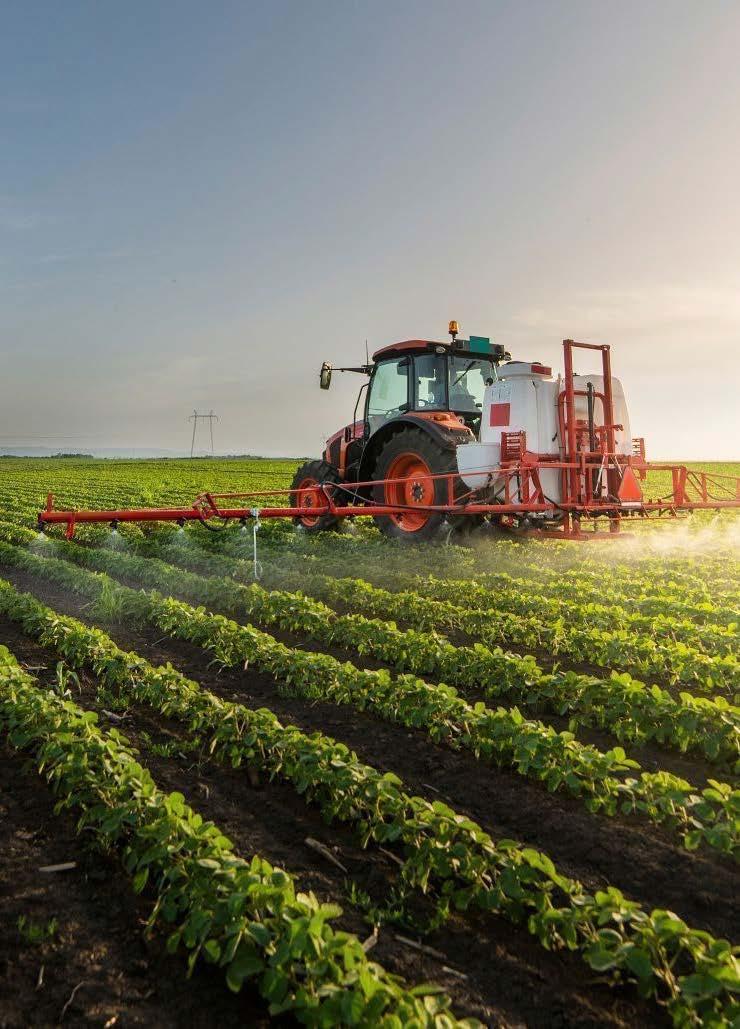
SHAPING AFRICA'S AGRICULTURAL POTENTIAL TOWARD THE PATH TO ECONOMIC RECOVERY
18 - 20 October 2023 To register visit: https://agrinvestafrica.com/ #DEVACAGRINVESTAFRICA2023 agrinvest
Marriott Hotel Crystal Towers |Cape Town |South Africa
Exploration of Palm Oil Will Increase Sector’s GDP – Expert
An agriculture investor, Mr Leke Oluwatosin, says exploring palm kernel oil processing will boost the sector’s contributions to the country’s Gross Domestic Product (GDP).

Oluwatosin, the Chief Executive Officer of LSX Integrated Agro Processing, disclosed this in an interview with the News Agency of Nigeria (NAN) on Monday, 26 June 2023 in Lagos.
He also harped on the viability of palm oil and its derivatives value chain in increasing the country’s agriculture revenue.
“The choice of oil palm cultivation is based on the viability and lucrative nature of the produce. In the U.S., it costs more to buy palm oil than any other oil variety.
“The export potential of oil palm, its derivatives and the entire value chain are very essential to everything we use on a daily basis.
“This means that any country that cultivates and produces oil palm will earn more revenue, create jobs and improve the GDP of the country.
“Nigeria used to be an oil palm production and export giant; we need to go back and explore the potential of the sector for the next generation.
“Our investments in the palm kernel oil processing is based on the fact that we are not producing enough of this liquid gold.
“It is disheartening that Nigeria still imports palm oil and some of its derivatives. We still bring it in from Malaysia and Indonesia. It is really an irony,” he told NAN.
Oluwatosin also reiterated the importance of palm oil as essential product in the production cycle of cosmetics and soap companies. He explained that mesocarp (the outer skin) of the oil palm produce red palm oil while the seed inside the kernel produce the palm oil.
“When the seed is crushed, it produces palm oil, and it has so many uses in cosmetics, industrial application, edible oils, soaps and many others.
“Also, from the crushed seed after extracting the oil, we get the palm kernel cake.
“We have so many soap manufacturers who demand palm kernel oil as major component for soap production hence its viability.
“The palm kernel cake is then used primarily in the production of animal feed like poultry, piggery, livestock, etc.
“The palm kernel cake is a great source of protein for the livestock feed,” Oluwatosin said.
He noted that the reason oil palm sector was not living up to its potential was due to challenges in the country like inadequate power supply.
“Some of the machines we are using in processing the palm kernel oil require consistent electricity.
“Due to the inability to harness adequate power supply, most people in oil palm sector would just stop at cultivation and harvesting without adding value to the produce.
“We want to change the narrative by playing a big part in ensuring the value chain of the sector is thriving,’’ he added.
NAN reports that LSX Farms and Integrated Agro-Processing Company is a multi-enterprise agro-business founded in 2019. It focuses on the establishment of oil palm, coconut, and cashew plantations.

Palm Oil Today Africa | Jul-Sept 2023 12
Source: www.pulse.ng
INDUSTRY NEWS
Mr Leke Oluwatosin CEO, LSX Integrated Agro Processing
Indonesia Mulls Diverting Palm Oil Exports to Africa Over
With European nations implementing the European Union Deforestation-Free Regulations (EUDR), the government is thinking of gradually diverting Indonesia’s palm oil exports to Africa, Coordinating Minister for Maritime Affairs and Investment, Luhut Binsar Pandjaitan, has said.
At a press conference on improving the governance of the national palm oil industry here on Friday, he informed that the volume of palm oil exported from Indonesia to Europe could reach 3.3 million tons per year.
“I have conveyed to the European Parliament that we (the Indonesian government) are considering to gradually divert our palm oil exports to Africa in place of Europe… so that there will be no problem in the future,” the minister said.
The European Union’s new policy requires all exporters to verify that their products have not been obtained through deforestation or from plantations built by clearing forest areas. Exporters would be fined if they violate the rule.
The products include palm oil and its derivatives, charcoal, cocoa, coffee, soybeans, beef, timber, rubber, paper, and leather.
The regulation applies a benchmarking that classifies countries into three categories based on low, standard, and high risk of deforestation.
The EUDR was promulgated in April 2023 and officially took effect on May 16, 2023. The European Union has given 18 months to large companies to comply with the new regulation, while small entrepreneurs have been given 24 months.
Earlier, Coordinating Minister for Economic Affairs, Airlangga Hartarto, said that the regulation will create ecological discrimination and burden the national logistics sector, which will put Indonesia at a disadvantage.

“Because, before our commodities are declared clear, we cannot send them (to European Union members), or (they may request) extra verification,” he added.
Meanwhile, Trade Minister Zulkifli Hasan stated that small entrepreneurs will not find the certification requirement easy to fulfill, which will hinder them from exporting their products to European countries.
Jul-Sept 2023 | Palm Oil Today Africa 13 INDUSTRY NEWS
Source: en.antaranews.com
Coordinating Minister for Maritime Affairs and Investment, Luhut Binsar Pandjaitan (center), holding a press conference on improving the governance of the national palm oil industry in Jakarta on Friday (June 23, 2023). (ANTARA/Ade Irma Junida/uyu)
Palm Oil Imports from Malaysia Surges 353% In 4 Months
Palm oil imports from Malaysia – a top global producer to Nigeria have surged by 353 per cent in the first four months of 2023 despite local players ramping up production, data from the Malaysian Palm Oil Council (MPOC) shows.
The Nigeria’s palm oil import from Malaysia increased to 92,961 metric tons (MT) between January-April 2023, from 20,513 MT in the corresponding period of 2022, indicating a 72,448 MT increase.
In 2022, the country imported 227,035 MT of palm oil from Malaysia.
Despite moves by the government, in listing crude palm oil alongside other 40 items restricted from forex access, and closing the Nigerian borders, oil palm imports into the country are still on the rise owing to the huge demand-supply gap, according to experts.
“Nigeria’s oil palm imports from Malaysia will continue to increase for the time being because our investment in the
industry is still very insignificant,” managing director, Palmtrade and Commodities Development Nigeria Ltd, Henry Olatujoye, said according to reports by BusinessDay.
“We estimated that our local/domestic consumption is averaging 2.4 million tons in a year, and our first-class developers – Okomu, Presco, and others, do not annually produce up to 800,000 tons.
“If we estimate the pocket smallholder farmers to be contributing up to a million tons, we’d still have a shortfall compared to demand,” Olatujoye added
According to the United States Department of Agriculture (USDA), the production of palm oil in Nigeria reached 1.4 million metric tons (MT) in 2022, a 9 per cent uptick from 2020/21 when production stood at 1.28 million MT.
In the face of years of stagnant output growth and growing local demand, Nigeria’s production deficit has widened considerably, and on average, over the last five years, around 25 per cent of yearly domestic palm oil consumed in the country was imported.
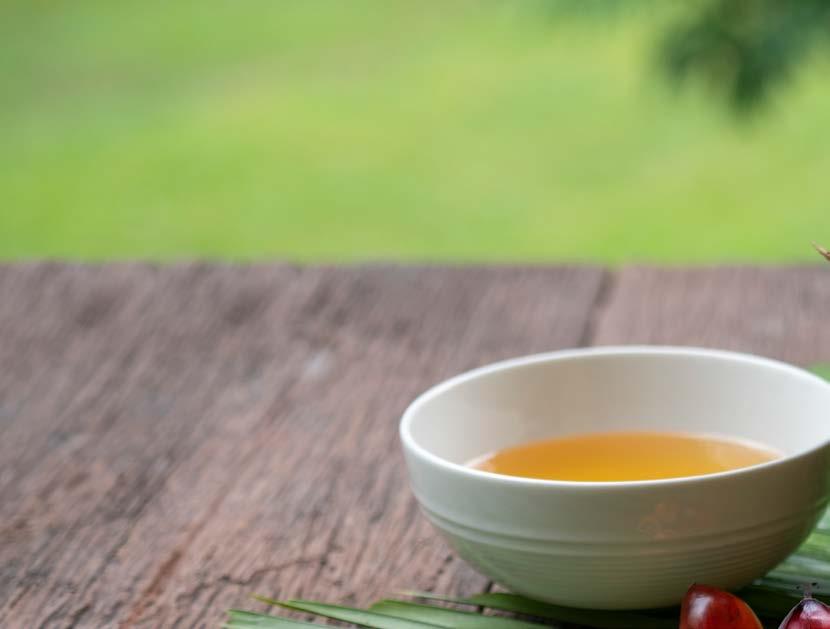
Palm Oil Today Africa | Jul-Sept 2023 14
INDUSTRY NEWS
Based on a USDA estimate, local production accounts for around 78 per cent of consumption, and Nigeria consumed two million MT in 2021, leaving a deficit of 0.6 million MT between 2012 and 2021.
Alphonsus Inyang, president of the National Palm Produce Association of Nigeria said Palm oil prices in Nigeria have gone up and have remained the most expensive in any Crude Palm Oil producing country, due to the high demand for the commodity.
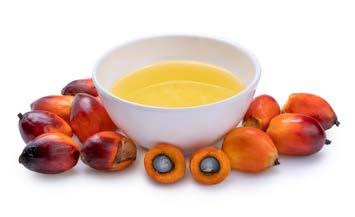
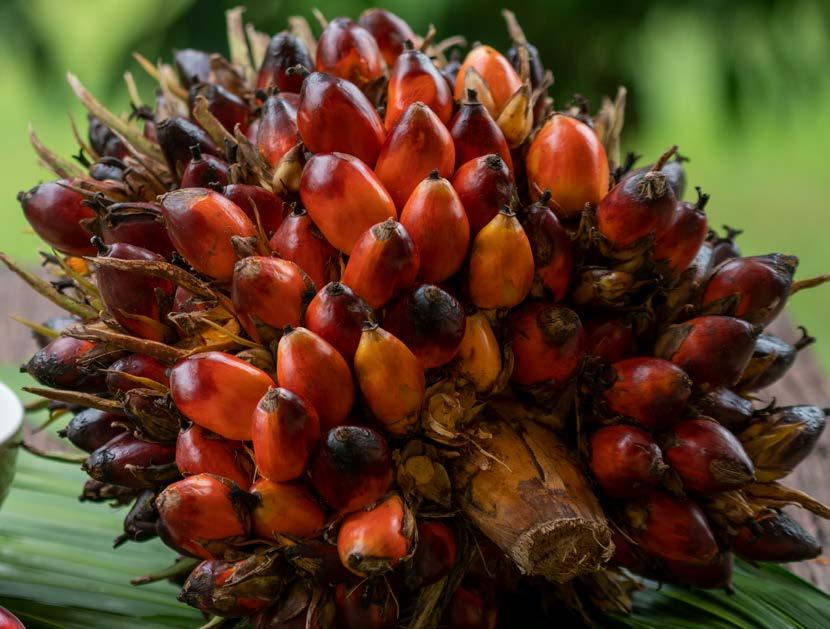
According to him, a metric ton of palm oil sells between N1-1.2 million depending on your location.
In a telephone response, Inyang said the situation is since primary production of palm oil has been seriously neglected by various governments.
“The lack of funding and interest in oil palm production by successive governments has led to the neglect of the sector, and more farmers have lost their livelihood through lack of profit for maintenance/expansion to produce more.”
Globally, palm oil prices fell sharply in May as protracted weak global import purchases coincided with rising outputs in major producing countries, the United Food Agency said in its May global food price report.
The solution to the demand-supply gap, according to Olatujoye, “is our ability to convert our forex to plantation development, under Good Agricultural Practices,” as foods like noodles, vegetable oil, biscuits, chips, margarines, shortenings, cereals, baked stuff, washing detergents, and even cosmetics are made from palm oil.
Jul-Sept 2023 | Palm Oil Today Africa 15 Source:
leadership.ng
MPOB: Mechanisation Rate in Palm Oil Plantations Still Low
The adoption of mechanization in Malaysia’s oil palm plantations is still relatively low at less than 50 per cent for overall field activities, and less than 15 per cent for harvesting, according to the Malaysian Palm Oil Board (MPOB).
Director-general Datuk Dr Ahmad Parveez Ghulam Kadir attributed the low adoption rate to challenges such as system capability in rough environments, high implementation costs and lack of technical expertise.
“As such, efforts are being directed towards leveraging advancements in the fourth industrial revolution (IR 4.0) technologies like drones, robotics, sensors, big data analytics and the Internet of Things (IoT).
“One of the main drivers for increased mechanization is the need to reduce dependency on foreign labor and increase local participation in the industry,” he said at the two-day 10th International Planters Conference 2023.
Currently, the nation’s oil palm industry relies heavily on foreign labor, particularly for maintenance activities and harvesting of fresh fruit bunches (FFB).

Ahmad Parveez emphasized that increasing mechanization adoption and developing skilled local workforce would help the oil palm industry address labor shortages and improve overall productivity.
He added that mechanization could enhance efficiency, productivity and sustainability in oil palm plantations.
In its efforts to reduce dependency on foreign labor, the MPOB has aggressively conducted research and development and introduced breakthrough technologies to ease fieldwork and improve plantation efficiency and labor performances.
Its list of inventions includes the Hydra-Porter, a hydraulicallypowered 4-Wheel FFB transporter; harvesting tools like Cantas and Cantas Electro, The Grabber, Beluga, sensor-based spraying vehicles, and FFB Mobile Lifter.
Palm Oil Today Africa | Jul-Sept 2023 16
Source: www.thesundaily.my
Pix for representational purpose only/REUTERSPix
ORGANIZATION NEWS
CPOPC Aims 93% Of World’s Palm Oil Producing Countries to Become Members by Next Year

Nageeb said the council would have more strength and weight once Thailand comes on board as the country is the third world’s biggest producer but the process was put on hold due to the country’s general election process.
“Once the government settled in, we will make another approach to them as they have indicated their willingness to talk to us previously,” he said.
On European Union Deforestation-free Regulation (EUDR), he said the recent mission to seek solutions regarding the law was seen as successful and the council is in a good position towards the goal as the industry has been getting more attention among the governments, which has been lacking before.
“50 per cent of the world’s production came from smallholders and if you do not accept them, you’re sidelining the smallholder from the whole value chain, hence, we want them to accept all standards in order to bring the smallholders on board as well.
The Council of Palm Oil Producing Countries (CPOPC) aims to have 93 per cent of the world’s palm oil producing countries as members by next year, especially once countries such as Thailand, Papua New Guinea, Colombia, Ghana and Nigeria are on board.
Deputy Secretary General of CPOPC Datuk Nageeb Wahab said the council has been trying to bring in countries from all continents to join the council and these countries are in the process of becoming members at the moment.
“We have rectified our charter and in our charter within the next two years, which is one year ago that all have to become our board of members. So, we got a timeline for another year and we are optimistic that they will come on board.

“They are interested but because of the countries’ legislative process, it’s getting delayed,” he said at a press conference after the opening ceremony of the 10th International Planters Conference here today.
“So, what we are asking is that there must be a reference on Malaysian Sustainable Palm Oil (MSPO) standard when they implement EUDR that comes into obligation 18 months from now,” he said.
He said the council wanted to do its level best to help smallholders from being excluded from the supply chain.
On the impact of the ringgit weakening towards palm oil export, Malaysian Palm Oil Council (MPOC) chairman Datuk Carl Bek-Nielsen said the weakening of local currency has been supportive to some extent but with ups and downs as a lot of currencies seen to be weakening too recently.
“I see the demand is already picking up for exports like countries from China, India, the Middle East and Africa. So, I do not see an issue if we increase our production as there is a market for it,” he added.
Jul-Sept 2023 | Palm Oil Today Africa 17 Source: www.thestar.com.my
ORGANIZATION NEWS
MPOB: EUDR Will Not Affect Palm Oil Growth, Revenue
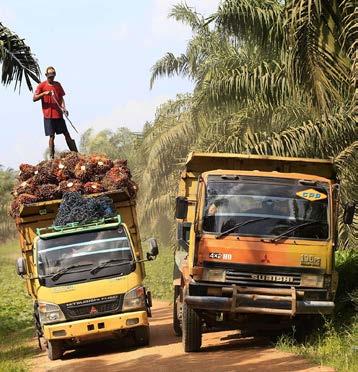
Fixing the growing narrative
While revenue will be affected by the EUDR, there are concerns about the narrative being created about various issues – the environment, labor and deforestation – in Malaysia’s palm oil industry which have to be cleared.
“We want to counter this upfront because these issues will influence other consumer countries going forward, even India at some point in the future. So, we want to put a stop to this. Otherwise, it will generate and spread a bad image about our palm oil industry,” he explained.
For instance, he said big western multinational companies operating in Malaysia such as Nestle will still buy palm oil (to manufacture their products) for the domestic market, but not for export purposes, as guided by its corporate policies and procedures.
The implementation of the European Union Deforestation-free Regulation (EUDR) will not affect Malaysia’s palm oil growth and revenue as European Union imports are insignificant compared to other countries.
Malaysian Palm Oil Board (MPOB) chairman Mohamad Helmy Othman Basha said Malaysia exported about 1.5 million tons to the EU from a total production of about 20 million tons last year. Therefore, the amount is small.
“We know the consumption growth of palm oil is not coming from EU but it will be from India, China, Africa, Middle East and other places. Hence, if we look from the revenue perspective, even if we sell less to EU, we could still sell to other countries,” he told Bernama during the 10th International Planters Conference.
In 2022, the EU imported about six million tons of palm oil.
Furthermore, Mohamad Helmy said that it is hard for new areas to be developed for oil palm plantations, which means potential palm oil growth is very limited while consumption will keep growing.
“Public opinion shapes the way policies are being formulated in their country and this is why we really need to intervene before it starts spreading. Otherwise, it will be too late.
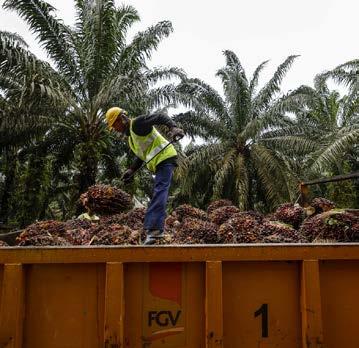
Palm Oil Today Africa | Jul-Sept 2023 18 ORGANIZATION NEWS
MPOB said Malaysia exported about 1.5 million tons to the EU from a total production of about 20 million tons last year. — Bernama photo
“Of course, we are not going to fix the problem and change perception overnight but if we do it now, hopefully next generation and even the current generation will learn (a different narrative) about our palm oil industry,” he said.
Deputy Prime Minister Datuk Seri Fadillah Yusof recently led a highly successful mission to meet key EU lawmakers to seek solutions regarding the bloc’s unjust deforestation law, called EUDR, which could dampen the palm oil industry.
The EU mission, in collaboration with Indonesia under the Council of Palm Oil Producing Countries (CPOPC), was successful in getting assurances of more engagement with the EU before the EUDR, aimed at reducing global deforestation, is enforced.
Within 18 months after coming into force, the European Commission will announce which producer countries –including EU member states – are deemed low, medium, or high risk based on their rate of deforestation and forest degradation, and the existence, compliance with, and effective enforcement of laws protecting human rights, the rights of indigenous peoples, local communities, and other customary tenure rights holders, among other criteria.
Moreover, Malaysia had also pledged to maintain at least 50 per cent of forest cover during the Rio Earth Summit in 1992. Malaysia’s forest cover is currently at 55.3 per cent.
Local palm oil quality competitive
While the first collaboration between Malaysia and Indonesia under one CPOPC umbrella to fight against EU’s narrative was successful, the local consumption in the neighboring country is strong with domestic market obligation and B30 biodiesel mandate.
“However, Malaysia does not have the same advantage like Indonesia,” he said.
Mohamad Helmy said Malaysia has the competitive advantage of better-quality production with well-organized government and industry management.
“We also have credible data to be published to back up our production and stock data. To some extent, this has proven to be an advantage,” he said.
He said the relationship between both countries has developed over the years with Malaysia having developed its plantation sector much earlier.
Protecting smallholders
“The recent EU mission shows that we – being the two biggest producing countries – are countering the narrative and negative campaigns. At the same time, it would be better if we do it jointly,” he said.
Malaysia and Indonesia are major contributors to the world’s palm oil market with both countries accounting for 80 per cent of the market.

He said the common interest between both countries was to protect smallholders as the new EUDR would affect smallholders significantly compared to big companies.
“The message we are trying to convey is whatever they are doing over there is really hurting millions of smallholders here,” he said.
Smallholders, despite accounting for between 35 per cent and 40 per cent of global production currently have only a small share of the EU market.
He added that Malaysia has about 250,000 registered smallholders with another 215,000 independent smallholders while Indonesia has millions of them.
Jul-Sept 2023 | Palm Oil Today Africa 19
Source: www.theborneopost.com
First Smallholders to Get Roundtable on Sustainable Palm Oil Cert
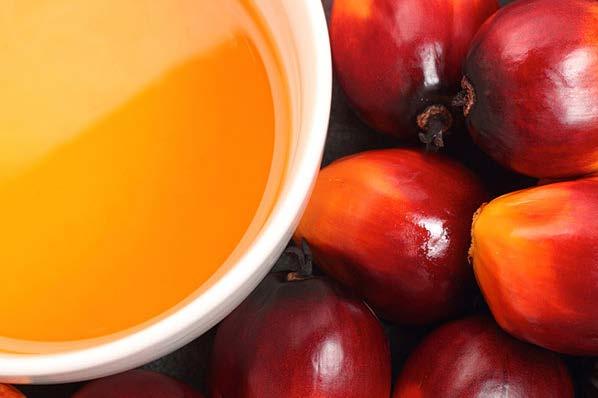
Koperasi Landskap Kelapa Sawit Sabah Bhd (LKSS) were awarded the Roundtable on Sustainable Palm Oil (RSPO) certificate.

LKSS is the first growers’ cooperative in Malaysia to receive the certification for the Eligibility Phase of the RSPO Independent Smallholder Standard (RISS) under the group certification scheme.
With the certification, smallholders are allowed to receive an immediate 40 per cent premium through selling RSPO credit before being fully accredited, and subsequently a full premium price upon completing all its milestones.
Established in 2019, LKSS was formed with support from WWF-Malaysia and aims to engage and assist medium-sized growers and smallholders in preparing for group certification under the Malaysian Sustainable Palm Oil (MSPO) and RSPO certification standards for the Tawau-Kunak Landscape.
It has now grown to over 380 members comprising of 300 smallholders and 80 medium-sized growers with a cumulative land area of about 16,000 hectares.
“We hope that more of our members will follow in the footsteps of these 25 smallholders. Meanwhile, our sustainability team will continue to support these 25 smallholders to prepare for the next phase,” said Shim Nyuk Min, LKSS Chairman.
Palm Oil Today Africa | Jul-Sept 2023 20
Some of the 25 Koperasi Landskap Kelapa Sawit Sabah members who received their RSPO Certification.
ORGANIZATION NEWS
Also present at the LKSS certification ceremony was Nur Nazifah Ahmad Rosland, RSPO Smallholder Program Manager (Malaysia) who presented the certification on behalf of RSPO.
RSPO certification offers smallholders the opportunity to earn additional revenue through RSPO credit sales, contribute to sustainable palm oil production, and align with global sustainability standards.
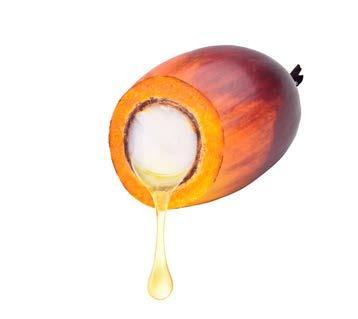
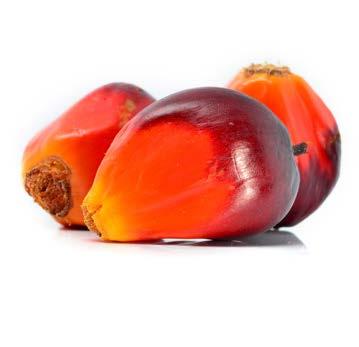
These benefits not only support the economic well-being of smallholders but also contribute to environmental conservation and the social welfare of local communities.

“This is a great milestone for LKSS and they deserve commendation. We are eager to see what the future holds for them and will continue to support them in their sustainability journey,” said Dr Robecca Jumin, WWF-Malaysia’s Head of Conservation, Sabah.
Since the formation of LKSS, WWF-Malaysia through its Sustainable Palm Oil Team (SPOT) has facilitated two other growers’ cooperatives, namely Koperasi Lestari Penanam Sawit Sabah Berhad (KLASS) and Koperasi Pekebun Kecil dan Sederhana Sawit Lestari Sabah Berhad (KO-SALESA).
Both KLASS and KO-SALESA consist of 50 and 37 smallholders respectively covering a combined total land area of roughly 1,300 hectares in the Tabin and Sandakan landscapes.
Similar to LKSS, both cooperatives will assist medium-sized growers and smallholders to prepare for group certification for both MSPO and RSPO.
This initiative also aligns with the Sabah Government’s commitment to 30 per cent Totally Protected Areas (TPA) and 100pc RSPO certification of palm oil by 2025 as part of a jurisdictional approach to sustainable development.
Under WWF-Malaysia’s Sabah Landscapes Program, Spot aims to support 450 small and medium-sized growers in three priority landscapes namely Tawau-Kunak, Tabin and Lower Sugut covering 45,000 hectares to produce RSPO-certified palm oil by 2025.
Based on the living landscape’s three pillars of Protect, Produce, Restore, the Sabah Landscapes Program combines both conservation and sustainable development by integrating the protection of forests, wildlife and rivers, with RSPO-certified production of oil palm, and restoration of ecological corridors and riparian reserves.
Jul-Sept 2023 | Palm Oil Today Africa 21
Source: www.dailyexpress.com.my
MPOC: Palm Oil Industry Can Lead in Sustainable Agriculture Practice
The palm oil industry has the potential to lead in sustainable agricultural practices, said Malaysian Palm Oil Council (MPOC) chairman Datuk Carl Bek-Nielsen.
He said that oil palm is the preferred choice for producing more output with less land used compared to other edible oils, and if palm oil were to be substituted with an alternative, a larger amount of land would be needed to meet the same level of production or supply.
“It would require seven to 10 times more land; as much as 240 million hectares,” he said.
Speaking at the 10th International Planters Conference 2023, Bek-Nielsen highlighted that Malaysia’s deforestation rate due to oil palm planting activities has also declined.
“In fact, the mature oil palm area in Malaysia has fallen by 0.2 million hectares over the last three years.
“Comparatively, the deforestation rate in Brazil due to soybean plantings has increased by six million hectares in the last three years,” he said.
Bek-Nielsen added that companies in the oil palm industry are also signing up for the Roundtable on Sustainable Palm Oil (RSPO) certification, committing to principles such as no deforestation, no new peat development and no exploitation.


He also emphasised the need to help smallholders improve their operations to enhance sustainability, noting that smallholders account for 40 per cent of Malaysia’s crude palm oil production.
Bek-Nielsen also urged the industry to embrace mechanisation, decarbonise the value chain, upskill employees, and adopt handson leadership.
“Sustainable palm oil is the way forward and the increasing demand for palm oil in the future calls for a shift towards sustainable practices, and this requires shared responsibility and changes by everyone involved,” he added.
Palm Oil Today Africa | Jul-Sept 2023 22 ORGANIZATION NEWS
Datuk Carl Bek-Nielsen
Source: www.thestar.com.my















OCTOBER 2023 4-6 SANTIKA PREMIERE DYANDRA HOTEL & CONVENTION MEDAN - INDONESIA Brought To You By : Endorsed and Suppor ted By : INDUSTRY NETWORKING LUNCH Technology Seminars International Conference Join the World's Largest Palm Oil Event at the Heart of the Industry! www.palmoilexpo.com +62 21 5088 2917 info@fireworksid.com 9 th INDONESIA INTERNATIONAL PALM OIL CONFERENCE 2023 Incorporating : 2023 13thEdition O cial Lunch Sponsor : highlights of the event MEET OUR EXHIBITORS :
Palm Oil Industry Players Urged to Act Together to Improve Workers’ Welfare
Concerted efforts in improving employee welfare are needed from all palm oil industry players to ensure the sustainability of the industry, said Deputy Prime Minister Dato Sri Fadillah Yusof.
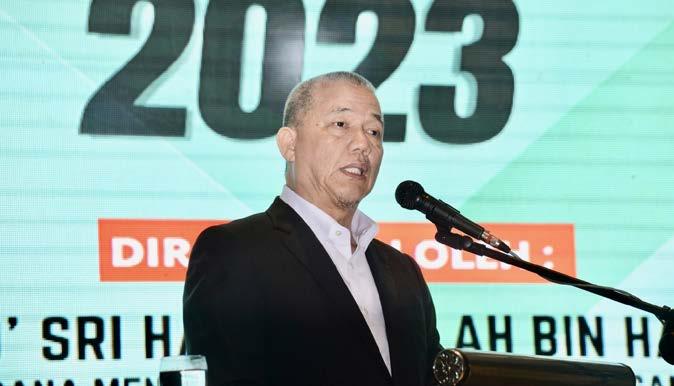
Fadillah, who is also Plantation and Commodities Minister, said although the industry now shifts towards automation and mechanization, developing its human capital still plays a fundamental role in strengthening its position in the whole supply-chain process.
He said without qualified talents, the industry would not be able to anticipate, especially when addressing the emerging challenges.
“We need industry players, all parties involved in this process must work together, to promote and implement positive and responsible business practices.
“Industry players also need to take proactive steps in making sure that procedures pertaining to labor welfare matters are in compliance with all laws and regulations,” he said when met after launching the Information & Dialogue session on Agrocommodity Energy Use 2023.
Fadillah said while it is the government’s duty to provide safety of the employees, the industry also needs to take a look at how the current welfare has affected their employees’ performance.
According to him, improving employee welfare should not be seen as a burden but rather as an advantage as it could help to repair Malaysia’s image amidst allegations and negative perception linking palm oil cultivation to deforestation.
He said adopting a pragmatic approach will not only increase employees’ well-being but also the growth of business.
“If we take care of the welfare of the workers, their productivity will definitely encourage more economic growth because when they work in a good and positive work environment, they will be able to improve productivity and this will generate revenue for the company.
“And these are the commitments that all industry players need to have,” he added.
Palm Oil Today Africa | Jul-Sept 2023 24
Fadillah delivering his speech during the dialogue session.
Source: www.theborneopost.com INTERNATIONAL NEWS
MPOC: ‘No Palm Oil’ Labels Are Illegal and Violate Malaysian Law
“Retail outlets that display and sell products labelled as ‘No Palm Oil’ (NPO) will face penalties if found guilty by enforcement officers of the Ministry of Domestic Trade and Cost of Living (KPDN).
“In a survey conducted by MPOC, it was found that 80 outlets in the Klang Valley region sell these products, with a concentration in high-end areas of the region.
“Letters have been sent to the eight holding companies of the 80 outlets to draw their attention and urge them to take immediate action to comply with the regulations,” it said.
“The NPO label may appear in many other claims such as ‘Palm Oil Free’, ‘Without Palm Oil’, ‘No Palm Fat’, ‘Never Palm Oil’, and others, in English or in foreign languages,” it noted. As found in the same survey, it may also appear as distinct logos, depicting orang-utans or putting a slash or a cross mark across a picture of oil palm.
MPOC chief executive officer Belvinder Sron said palm oil is the number one national commodity and “plays a significant role in our economy and it should be protected as best as possible.”
The Malaysian Palm Oil Council (MPOC) has “strongly” urged retailers “to remove all products and advertising materials displayed and sold that bear any discriminatory logos against palm oil from their premises.”
Failing to do so, they could face a hefty fine of RM250,000 or jail time not exceeding five years, MPOC said in a statement.
It said the regulations under Section 69 of the Trade Description Act 2011 prohibit any person in the course of any business or trade, or in any advertisement, to use any statement, expression, or indication that discriminates against or boycotts palm oil products. The regulations came into effect in March 2022 and after a year of grace period, its enforcement has now come into full force.
Moreover, palm oil is a versatile and widely used ingredient across various industries, including the food, oleochemicals, and biofuel sectors.
“While it is important to encourage sustainable and responsible practices within the palm oil industry, it is equally crucial to avoid creating a prejudiced narrative against this commodity as a whole.
“If all anti-palm oil efforts in the country are not addressed, palm-based products will continue to be denigrated and boycotted in the world market,” she said.
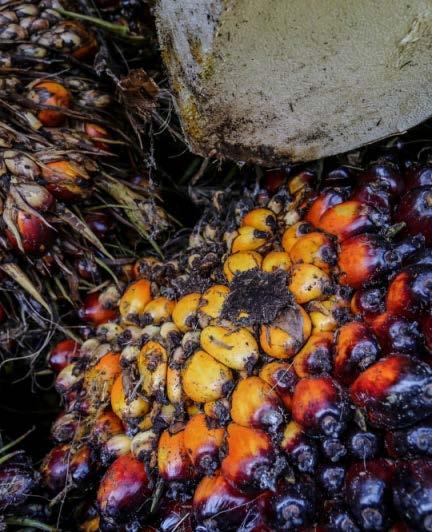
Jul-Sept 2023 | Palm Oil Today Africa 25 INTERNATIONAL NEWS
Source: www.malaymail.com
MPOC has ‘strongly’ urged retailers ‘to remove all products and advertising materials displayed and sold that bear any discriminatory logos against palm oil from their premises.’ — Picture by Firdaus Latif
Palm Oil Mission Concludes on High Note with UK Set to Recognize MSPO
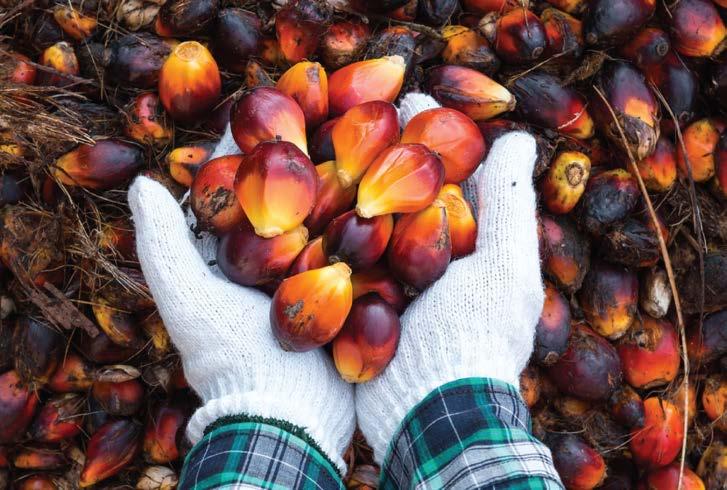
Deputy Prime Minister Datuk Seri Fadillah Yusof’s official visit to the United Kingdom ended on a high note as policymakers here have given their commitment to recognize the Malaysian Sustainable Palm Oil (MSPO) certification in the due diligence guidelines for ensuring that commodities entering the country are sustainable.
He said this transpired in the meetings with Minister of State for International Trade Nigel Huddleston and Minister of State for International Development Andrew Mitchell.
“They were very positive, as they gave their commitment that MSPO will be among the documents recognized in the due diligence process,” he told the Malaysian media at the end of his official visit to the UK.
“In fact, they also said what they plan in terms of guidelines is that products originating from a different country that are not covered by UK laws will be bound by the producing countries’ laws,” he said.
Their statement is good news for Malaysia, said Fadillah, who is also the Plantation and Commodities Minister.
“Obviously, we would like to see this put down in black and white, but that is their initial statement and we look forward to working closely with the UK,” he said, adding that it would open up more business opportunities between Malaysia and the UK.
Palm Oil Today Africa | Jul-Sept 2023 26
INTERNATIONAL NEWS
The UK’s accession to the Comprehensive and Progressive Agreement for Trans-Pacific Partnership (CPTPP), of which Malaysia is a member, is expected in a few months. This will be Malaysia’s first trade deal with the UK.
Malaysia has negotiated with the UK to eliminate tariffs on Malaysian palm oil from the current 12 per cent to zero upon entry into the trade pact.
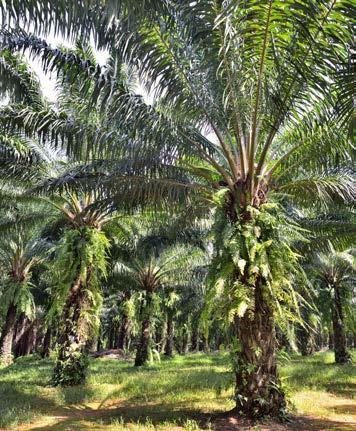

Bilateral trade between the two countries exceeded US$7.3 billion in 2022, with the UK recording a trade surplus of some US$786 million. (US$1=RM4.57)
For 2023, the Malaysian Palm Oil Board anticipates palm oil exports to increase by 3.7 per cent to 16.3 million tones due to continuous demand from importing countries.
Fadillah said Malaysia will also need to work together with the UK government to introduce a law to prevent negative labelling of products from Malaysia.
As part of his official visit to the UK, the Deputy Prime Minister also had a first-hand briefing at the Tun Abdul Razak Research Centre (TARRC), which is the UK-based research and development center of the Malaysian Rubber Board.
He also took time to interact with Malaysian students here.
Positive developments, challenges remain
As for the European Union (EU), he said although Malaysia and Indonesia’s joint mission to convey concerns over and objection to the newly legislated EU Deforestation Regulation (EUDR) is a success, challenges with the bloc remains.
Before coming to the UK, Fadillah was in Brussels, Belgium, for the joint mission under the Council of Palm Oil Producing Countries (CPOPC). Indonesia was represented by its coordinating minister for Economic Affairs, Dr Airlangga Hartarto.
The leaders had meetings with Frans Timmermans, European Commission executive vice-president for the European Green Deal and Commissioner for Climate Action Policy; Josep BorrellFontelles, High Representative of the EU for Foreign Affairs and Security Policy; and Virginijus Sinkevičius, Commissioner for the Environment, Oceans and Fisheries.
They also met Heidi Hautala, European Parliament vicepresident and a member of the European Parliament (MEP) in the Greens/European Free Alliance group, as well as Bernd Lange, MEP and chair of the International Trade Committee.
Jul-Sept 2023 | Palm Oil Today Africa 27
During the meetings, the Jakarta and Putrajaya leaders highlighted the impacts of the EU’s supply chain law and consistently emphasized the need for the EU to engage with the producing countries at the working and technical levels.
According to the CPOPC, the meetings were conducted in a cordial, frank and open manner.
The feedback has been positive as the EU is open to engagement, while the CPOPC has proposed a task force involving all stakeholders.
“What needs to be done now is more engagements. Most importantly, there is a need to follow up in ensuring the points raised and discussed are being addressed and reciprocated,” he said.
Malaysia and Indonesia contribute more than 80 per cent to global palm oil exports.
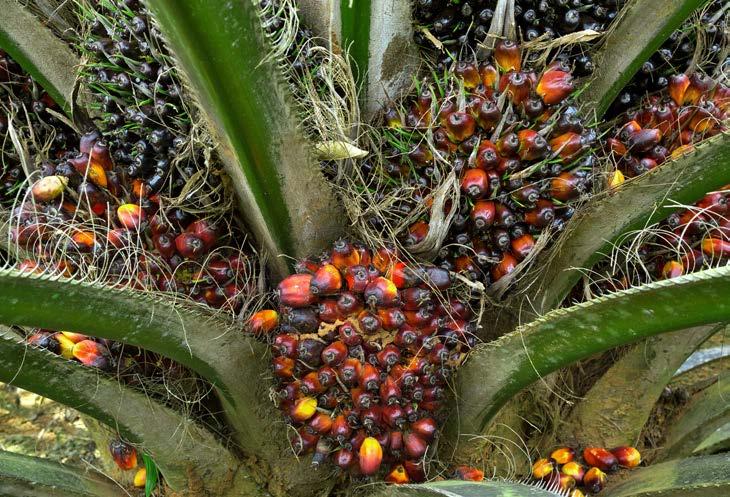
At the same time, Fadillah said Malaysia needs to be prepared for more laws and regulations to be introduced by the EU.
For instance, under the EU Renewable Energy Directive III (EU RED III), palm oil is still singled out by the EU regulators as the only biofuel feedstock having a high indirect land-use change
(ILUC) risk, and therefore it will be phased out for the purpose of being counted towards the EU’s renewable energy target by 2030.
In addition, the proposed Corporate Sustainability Due Diligence Directive, as well as the Regulation Prohibiting Products Made with Forced Labor are also potential trade barriers and burden to operators along the supply chain, especially smallholders.
In addition, the proposed Green Claims Directive compels companies to provide scientific evidence for their green labels.
“However, this regulation on generic and unsubstantiated environmental claims could be an important ground to challenge ‘palm oil-free’ and ‘no palm oil’ claims made by products placed in the EU market that imply that the ingredient used as a palm oil replacement has less of a negative impact on the environment,” he said.
“Overall, this mission to Brussels, Belgium, has been a success, especially as this was the first joint mission to the EU, and I believe the EU has heard us.”
Palm Oil Today Africa | Jul-Sept 2023 28
INTERNATIONAL NEWS
Soludo Imports Two Million Malaysian Palm Oil Seedlings, Coconuts; Targets N160 Billion Yearly Profit
“We started importation of one million palm oil seedlings and one million coconuts from Malaysia last year.”
Mr Ibezim said that based on the abundant opportunities in the sector, the government listed agriculture among the priority areas of investment in the 50-years development plan of Anambra.
He called on farmers to commit to the sector as the government will always support them in their activities.
Foster Ihejiofor, the agric commissioner, said the state’s focus is on “biological farming,” not on producing food.
“It is about preserving our environment and ensuring the sustainability of our food system. Biological farming, aka zero budget, carbon farming or regen-Ag, launched in 2022 by Governor Chukwuma Soludo, is a sustainable agricultural system,” Mr Ihejiofor explained.
Governor Charles Soludo says his government has begun importing one million palm oil seedlings and one million coconuts from Malaysia, hoping to make N160 billion annual revenue for Anambra.
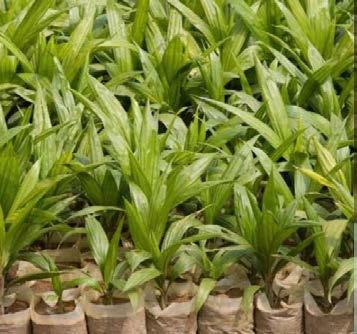
Deputy Governor Onyekachi Ibezim disclosed this while inaugurating the 2023 farming season at Alex Ekwueme Square Awka.
Mr Ibezim, who represented the Anambra governor at the event, said, “We started importation of one million palm oil seedlings and one million coconuts from Malaysia last year. These species have three years maturity period.”
He added, “When this investment fully matures, the off-takers will be processing the fruits of these plants, and over N160 billion will be yearly income from this window.”
The Anambra deputy governor also revealed the state government’s plan to irrigate 10,000 hectares of land for rice farming at Ifite Ogwari community in Ayamelum LGA for rice cultivation, stressing that agriculture can create wealth and employment opportunities for thousands of people.
The commissioner urged farmers to embrace the new farming system, saying, “Biological farming is not just environmentally friendly, it is also economically beneficial to farmers as it reduces the cost of inputs while improving soil’s health, plants’ health, nutrients, among others.”

Jul-Sept 2023 | Palm Oil Today Africa 29 INTERNATIONAL NEWS Source: gazettengr.com
Palm Oil Seedlings
Governor Charles Soludo













































Sabah To Come Up with Policy on Oil Palm Biomass
Sabah government will introduce its own policy to regulate oil palm biomass, said Sabah Industrial Development and Entrepreneurship Minister Phoong Jin Zhe.
“The creation of the policy is important for the long-term development of Sabah’s biomass industry while also contributing towards a sustainable socio-economic growth of Sabah.
Phoong said in 2021, Sabah was in the position to generate approximately 45 million metric tonnes of oil palm biomass.
“These include empty palm bunches, mesocarp fibre, palm oil kernels, palm oil effluent, palm oil stems and palm fronds. This shows the immense potential of down-streaming the biomass industry in Sabah.
“Therefore, the Sabah government has principally agreed to establish our very own Biomass Policy to regulate the supply and downstream of the palm oil biomass industry.
“The Sabah Cabinet has also agreed to utilise POIC Lahad Datu as the platform to spearhead the implementation of this policy,” he said.
Based on data, Sabah is the largest palm oil-producing state in Malaysia, with a total planted area exceeding 1.5 million hectares which accounts for 27 per cent of Malaysia’s total palm oil plantation area of 5.7 million hectares.
“This is especially true in terms of income generation, increased investment value and the creation of decent job opportunities,” said Phoong in a statement.
The announcement was made during the inaugural Malaysia Palm Oil Expo (MAPEX) in Sandakan.

The event showcased more than 40 international and domestic companies with the latest technology and research in the palm oil industry.
Sabah is also the largest producer of Crude Palm Oil in the country, contributing approximately 4.36 million metric tonnes of the country’s 18.12 million metric tons of total Crude Palm Oil production in 2021.
Phoong also noted that Sabah is also the main producer of Palm Kernels, Crude Palm Kernel Oil and Palm Kernel Cake.
Therefore, Phoong stressed the importance of the Sabah government introducing its’ own policy to regulate biomass.
Palm Oil Today Africa | Jul-Sept 2023 32
INTERNATIONAL NEWS
The main products that can be produced from oil palm biomass includes bio-pallet, bio-ethanol, bio-palm gas, bio-based chemicals, composite wood, and furniture.


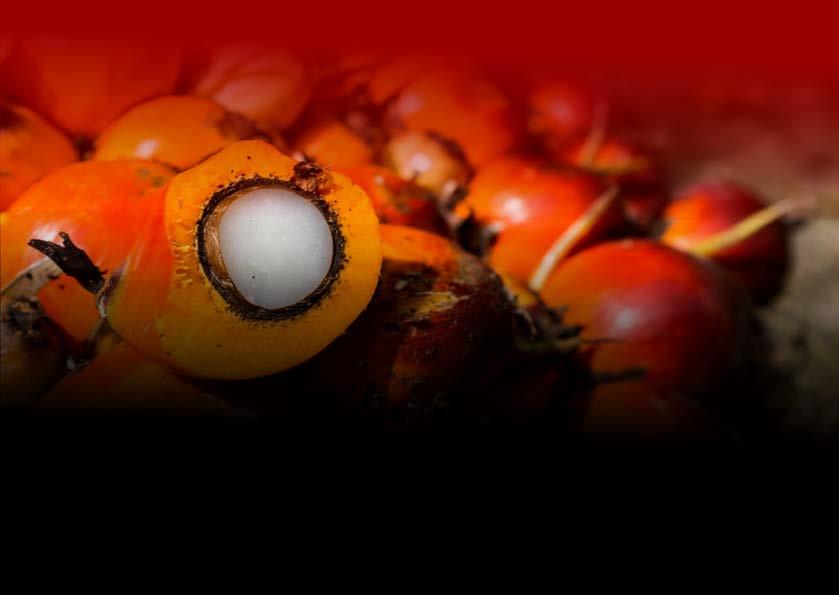
He also called upon the major oil palm industry players to look into developing the downstream of the oil palm industry in Sabah.
He expressed that the Sabah government is ready to roll out policies and incentives to help create a friendly environment for the development of the industry.
Present were Tanjung Papat assemblyman Datuk Frankie Poon, Sandakan Member of Parliament Vivian Wong Shir Yee, State Assistant Minister of Housing and Local Government cum Sungai Sibuga assemblyman Datuk Mohamad Hamsan Awang Supain, Gum Gum assemblyman Arunarsin Taib, Sungai Manila assemblyman Mokran Ingkat, Elopura assemblyman Calvin Chong and NRG Exhibition Senior
Source: www.nst.com.my
Govt Will Ensure Smallholders Are Not Left Out of Palm Oil Supply Chain, Says DPM Fadillah
The government is committed to ensuring that smallholders are not left out of the palm oil supply chain following the introduction of new palm oil regulations by foreign countries.
Deputy Prime Minister Datuk Seri Fadillah Yusof said Malaysia is of the opinion that whatever regulations the European Union (EU) wants to implement should involve negotiations with the government.
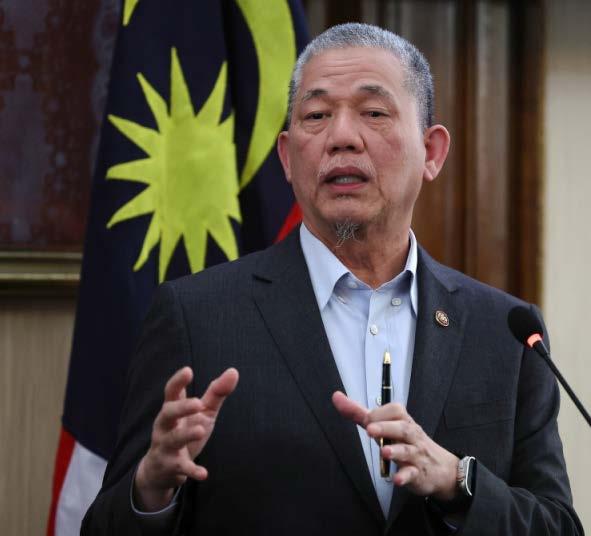
The message was delivered by the government during the joint mission of Malaysia and Indonesia to the EU through the Council of Palm Oil Producing Countries (CPOPC) in Brussels, Belgium late last month.
“This is our struggle. Our purpose in going to the EU that day was to state that whatever they implement must involve us in all negotiations so that smallholders in particular will not be neglected or left out of the palm oil supply chain,” he said while officiating at the closing of the FGV Consultation Program with Smallholders and Suppliers in the Miri Area.
Fadillah, who is also the Minister of Plantation and Commodities, said Malaysia and Indonesia had conveyed their position and concerns regarding the implementation of the European Union Deforestation Regulation (EUDR) to the EU.

Palm Oil Today Africa | Jul-Sept 2023 34 INTERNATIONAL NEWS
Deputy Prime Minister Datuk Seri Fadillah Yusof said Malaysia is of the opinion that whatever regulations the European Union (EU) wants to implement should involve negotiations with the government. Bernama file pic
He described the introduction of various regulations on palm oil as a way of competing in the form of discrimination and trade barriers because palm oil is more productive when compared to oil produced from other sources such as soybeans, sunflowers or corn.
“Alhamdulillah, they have already heard our views and they will come to Malaysia to go into detail all the discussions and hopefully our Malaysian Sustainable Palm Oil (MSPO) certification scheme will be adopted so that smallholders will remain in the global palm oil supply chain,” he said.
He emphasized the importance of smallholders maintaining environmental sustainability not only to meet the needs of the world market.
The practice of complying with MSPO or Roundtable on Sustainable Palm Oil (RSPO) standards is also to ensure that the environment is preserved for future generations to inherit.
He said the government understands the challenges faced by small oil palm planters, especially in relation to prices determined by global demand.
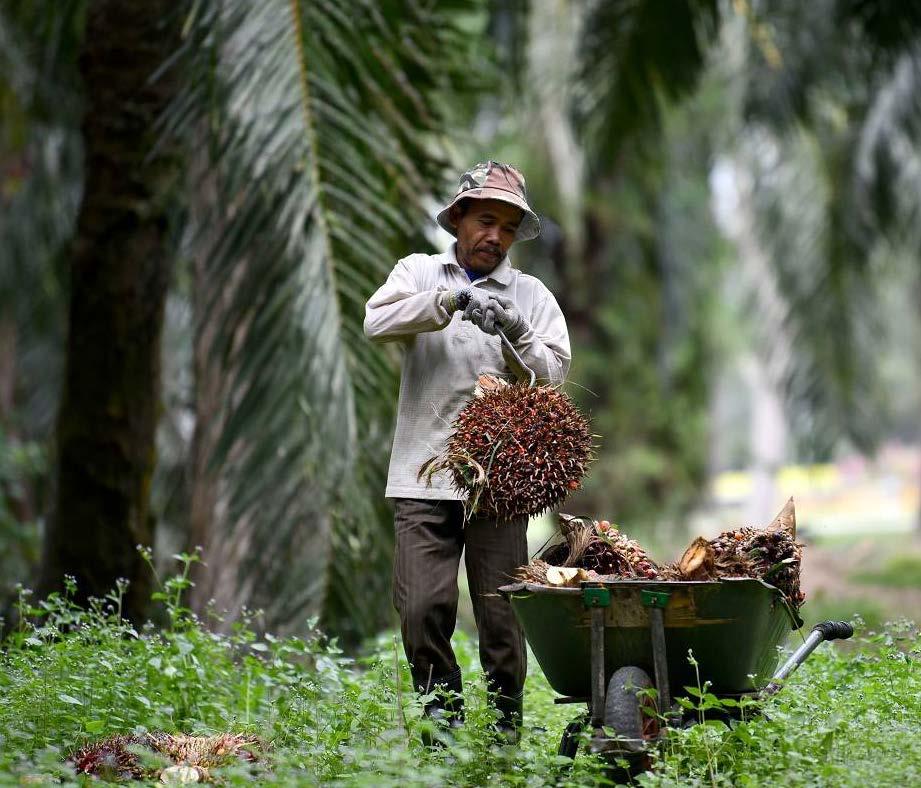
He said every smallholder should be prepared for global economic uncertainty with the global economy expected to grow at about three per cent until 2028.
He said the Malaysian economy is forecast to grow at four to five per cent with steady exports.

Hence, according to him, although generally the demand for palm oil will remain stable but the price may vary.
He advised palm oil smallholders not to rely solely on the commodity but carry out integrated farming to generate consistent income.
Jul-Sept 2023 | Palm Oil Today Africa 35 Source: www.malaymail.com
Palm oil estates in Sabah, Malaysia’s largest producing state of the commodity, are experiencing water stress from early signs of El Nino, cutting yields and exacerbating the impact of under-fertilising and labour shortages seen over the past three years.
Malaysia, the world’s second largest palm oil producer, is expecting a weak to moderate El Nino to hit from June to November, with a forecast for lower rainfall and temperatures rising between 0.5 degrees Celsius to 1.0 degrees Celsius.

“Due to the weather concerns, we have revised our yield forecast lower and are looking at a 10%-15% decline in 2023 yields,” said Mark Adrian, a senior manager with a mid-sized plantation firm in Sabah.
Planters across Sabah said the weight of harvested palm fruit has shrunk between 10% to 30% after hot weather since February, and expect the upcoming high crop season of July-September to also be affected.
“My trees are suffering. My crops are getting smaller in size, my palms are showing signs of water stress,” said Fabian Lim, an estate manager in Sabah.
“Most of my crop weight in May shrunk to 20 kg per bunch, compared to the year average of 22 kg per bunch,” Lim said.
Sabah, on Borneo island, accounts for 27% of Malaysia’s oil palm planted area. Production in Malaysia has been stagnant over the past four years despite growing demand for the world’s cheapest edible oil.
Hot, Dry Weather
Cuts Palm Oil Yields in Malaysia’s Top Producing State
Planters are bracing for another year of tight supply, partly due to a lack of fertilising after the coronavirus pandemic and as the Russia-Ukraine conflict inflated costs.
El Nino will worsen the impact of under-fertilising and threatens to hammer yields in 2023 and 2024, industry players and officials say, which would prop up prices of the world’s cheapest edible oil and heighten concerns over food inflation.
High temperatures also increase the risk of outbreaks of leafeating nettle caterpillars and bagworm, while dry soil hinders fertiliser-hungry palm trees from absorbing nutrients.

“Hence, the trees have less to eat and drink,” said Lim, who is scheduling his fertiliser programme around rain forecasts and has doubled the frequency of monitoring to ensure there is no outbreak of leaf-eating pests in the estate.
Adrian, the other estate manager, said he is mitigating soil moisture loss by using empty palm fruit bunches as mulch between rows of palm trees.
He said the bigger concern, however, is a long-standing shortage of workers for harvesting.
A pandemic-induced severe labour crunch in migrant-reliant Malaysia started to ease this year after the government relaxed hiring restrictions, but many plantations are still facing a shortfall of manpower ahead of the main July-September harvest.
Palm Oil Today Africa | Jul-Sept 2023 36
Source: www.nasdaq.com
INTERNATIONAL NEWS
Indonesia Urges Importers to Back Sustainable Palm Oil, Not Boycotts
Indonesia, the world’s largest palm oil exporter, on May 17 urged importing countries to recognize and pay the premium for sustainably produced palm oil rather than boycotting the widely-used oil, whose production critics say has been linked to deforestation.
The European Union in April approved a deforestation law to block imports of palm oil, beef, soy and other commodities if they are linked to recent destruction of the world’s forests.
Indonesia’s Coordinating Minister for Economic Affairs, Airlangga Hartarto (pic), said consumer countries were tightening entry requirements for palm oil.

“While trying to improve the environmental practices, we seek the cooperation of all the stakeholders to pay a premium for product that adopts sustainability practices,” Airlangga said at a ministerial meeting of the Council of Palm Oil Producing Countries (CPOPC).
Boycotting palm oil will not provide a long-term solution for the environment, he added.
Palm oil producers have in recent years said consumer goods companies do not buy enough sustainability-certified palm oil, undermining efforts to reward those who adopt greener practices and reduce deforestation.
Indonesia and Malaysia, the founding members of CPOPC, will send envoys to the EU at the end of May to discuss the impact of the bloc’s deforestation law on their palm oil sectors.
The envoy will aim to seek clarity on the traceability requirements of the EU regulation and urge the bloc to recognize palm oil sustainability certifications, Malaysia’s commodity minister Fadillah Yusof said.
Malaysia is committed to progressively raising the proportion of palm oil in biodiesel, said Fadillah, who is also deputy prime minister.
The world largest palm oil producers Indonesia and Malaysia use the edible oil as blending for biodiesel, with Indonesia in February raising its mandate to a 35% palm oil mix and Malaysia maintaining its mandate at a 20% mix.
“Malaysia continues its commitment to the implementation of the biodiesel program, progressively incorporating increased biodiesel blending ratios,” Fadillah added.
The CPOPC also welcomed Honduras as its third full member into the organization.
Honduras is the third-largest producer and exporter in Latin America, and eighth-largest globally, said Honduran agriculture minister Laura Suazo.
Jul-Sept 2023 | Palm Oil Today Africa 37 INTERNATIONAL NEWS
Source: www.thestar.com.my
Indonesia and Malaysia Seek to Soften EU Palm Oil Stance

Officials from the two countries met with leaders of the EU Commission and Parliament to negotiate the terms of upcoming legislation called the EU Deforestation Regulation, which will tighten rules on trading commodities associated with deforestation. — Jakarta Post
Indonesia and Malaysia, the world’s two largest palm oil producers, are in negotiations with their European Union (EU) counterparts, hoping the bloc will refrain from implementing stringent measures that may hammer the palm oil industry in its upcoming deforestation law.
Officials from the two countries met with leaders of the EU Commission and Parliament on May 30 and 31 to negotiate the terms of upcoming legislation called the EU Deforestation Regulation (EUDR), which will tighten rules on trading commodities associated with deforestation.
The talks were led by Indonesian Coordinating Economic Minister Airlangga Hartarto and Malaysian deputy Prime Minister and Plantation and Commodities Minister Datuk Seri Haji Fadillah Yusof.
They are pursuing to resolve several issues, namely, smallholders in the supply chain, acceptance of the national sustainable certification schemes, the law’s benchmarking system, geolocation, as well as land legality and traceability, according to the Council of Palm Oil Producing Countries.

“The EUDR will likely narrow smallholder farmers’ access to the EU market due to difficulties in fulfilling the requirements of proof of land legality and the geographical location of their plantations,” the office of the Coordinating Economic Affairs Minister told The Jakarta Post.
The office said Indonesia’s palm oil exports to the EU had declined to 5.3 million tons last year, down from seven million tons in 2019. Similarly, the share of the world’s palm oil exports to the EU shrank to just 10.2% last year, down from 17% over the past five years.
Both Indonesia and Malaysia also expressed concern over the EU’s planned benchmarking system in the regulation, which assigns a level of risk related to deforestation and forest degradation.
The system will assign the categories of low, standard and high, with the latter resulting in more inspections and controls from the bloc to countries shipping their products to the region.
“The argumentation and methodology behind the benchmarking are unclear and would be very damaging to many countries if they were given the high-risk status,” the office of the Coordinating Economic Affairs Minister said.
In a joint statement on June 1, Indonesia and Malaysia urged the EU to classify them as low-risk countries.
Meanwhile, Indonesian Palm Oil Association chairman Eddy Martono told the Post last Friday that the industry was worried the EUDR would render the Indonesia Sustainable Palm Oil and the Roundtable on Sustainable Palm Oil obsolete.
Palm Oil Today Africa | Jul-Sept 2023 38
Source: www.thestar.com.my
INTERNATIONAL NEWS
Sustainability Standards, Governments Must Do More for Palm Oil Producers

Concealed in half of all supermarket products, palm oil is the most widely produced edible oil. It represents a source of livelihood for over 7 million smallholder farmers worldwide. And given estimates that we need to generate 50% more food by 2050, it could play a key role in enhancing global food security and alleviating poverty.
Despite being incredibly versatile, palm oil often hits the headlines due to its contributions to deforestation, biodiversity loss, and climate change. A new report from the International Institute for Sustainable Development (IISD) unpacks recent market trends in the palm oil sector and examines the role that voluntary sustainability standards (VSSs) can play in improving its socio-economic benefits while addressing these environmental concerns.
The report comes at a time when international crude palm oil prices have been increasing steadily for many years—despite the volatility brought on by the COVID-19 pandemic and Russia’s invasion of Ukraine—but farm gate prices in major palm oil producing countries have declined.
“Farmers are receiving less and less for their oil palm fruits,” said Steffany Bermúdez, Policy Advisor, IISD. “Much of the value and profit in the palm oil supply chain is captured downstream by a handful of corporate groups that dominate the processing and trade of palm oil. Smallholder farmers, who account for two fifths of crude palm oil production globally, get the lowest prices and profits of all actors in the chain.”
With rising production costs, limited negotiation power, and a lack of access to finance and quality inputs to contend with, oil palm farmers are the least buffered against price volatility and market shocks. The result? Many are left struggling to earn a living.
VSSs such as the Roundtable on Sustainable Palm Oil (RSPO), Rainforest Alliance, and Organic encourage oil palm farmers to adopt more sustainable agricultural practices that can reduce the sector’s environmental impacts and increase farmers’ productivity.
“Today, around 17% of palm oil produced complies with one of these standards,” said Vivek Voora, Senior Associate, IISD. “But demand for VSS-compliant palm oil in its main consuming countries, like India and China, is lagging. This likely implies that supply is outstripping demand and that there is VSS-compliant palm oil that is being sold as conventional.”
Furthermore, evidence of the direct effects of VSSs on farmers’ incomes is limited. To date, there is no formalized system in place to calculate the prices and premiums received by VSScompliant farmers, so direct monetary incentives are not clear or guaranteed. They depend on the willingness of the buyer and fluctuate according to the international market price.
In response to these concerns, VSSs like RSPO have introduced initiatives to provide financial assistance to smallholder farmers and to encourage actors at all levels of the supply chain to share responsibility and commit to time-bound sustainability goals. The latter has helped the proportion of crude palm oil compliant with RSPO that is sold as such rise from 50% in 2019 to 64% in 2021.
But the report argues that adequate policy support is required to make VSS-compliant palm oil more competitive in domestic and international markets and to raise awareness among processors, retailers, and end-consumers in the main consuming countries.
Jul-Sept 2023 | Palm Oil Today Africa 39
Source: www.africa.com GREEN
SOLUTIONS
Agrico Qatar Interested in Crude Palm Oil Supply from M’sia - PM
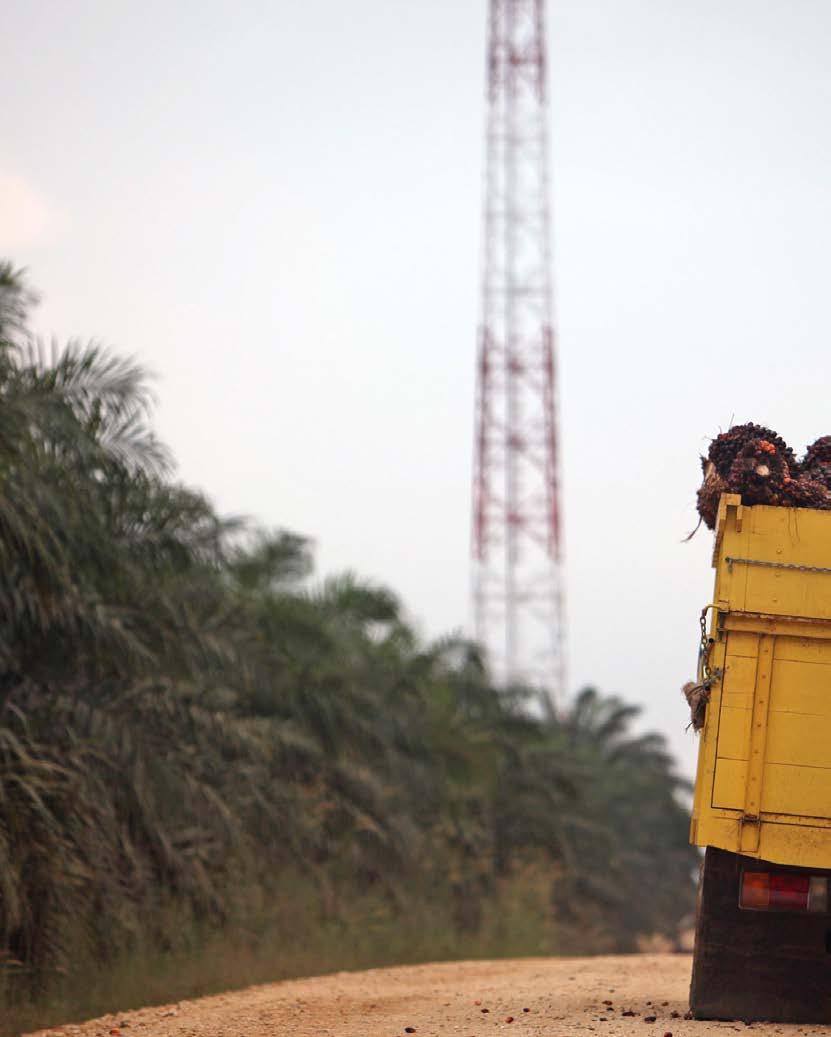
Palm Oil Today Africa | Jul-Sept 2023 40 REFINERY NEWS
Agrico Agriculture Development W.L.L. (Agrico Qatar), an organic agriculture company based in Qatar, intends to obtain a supply of crude palm oil for its palm oil refinery in Malaysia, says Prime Minister Datuk Seri Anwar Ibrahim.
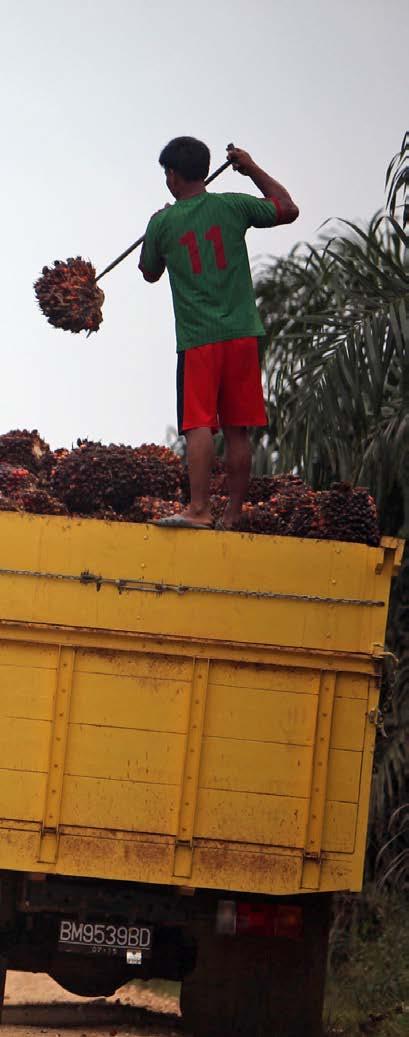
He said this was among the matters raised when he received a courtesy call from Agrico Qatar chairman Ahmed Hussain AlKhalaf at his office.
“InsyaAllah, the Investment, Trade and Industry Ministry (MITI) and the Selangor government are coordinating it. These products will then become high-quality products that can potentially be exported to Qatar, Tanzania, Afghanistan, India, and countries in the Middle East,” he said in a post on his Facebook page.
Also present at the meeting were Qatar’s Ambassador to Malaysia TYT Salah Mohammed Al-Sorour as well as representatives from MITI and the Malaysian Investment Development Board (MIDA).
Anwar said the Malaysian Government would continue to strengthen the business-to-business network between Malaysia and Qatar and welcome companies from Qatar to explore various trade and investment opportunities in Malaysia.
The Prime Minister said Agrico Qatar was the only organic farming company based on a hydroponic system in Qatar that used the latest technology in a sustainable manner.
Through this method, he said, Agrico managed to produce about 3,000 tons of high-quality vegetables and fruits throughout the year, meeting at least 90 per cent of Qatar’s local market demand.
Anwar said in 2023, Agrico Qatar through Agrico (M) Sdn. Bhd. aims to implement projects in three sectors, namely palm oil refining, agriculture and food safety, with an estimated investment value of RM1.5-2 billion.
He said this was in line with Qatar’s Vision 2030 and Malaysia’s National Food Security Policy Action Plan 2021-2025, and welcomed the efforts of the private sector in supporting the Government’s agenda towards ensuring food security and strengthening the food supply chain for both countries.
Jul-Sept 2023 | Palm Oil Today Africa 41 Source: www.nst.com.my
Novozymes’ Latest Biosolution,Lipura Split, Enables Fatty Acid Producers to Increase Efficiency and Boost Sustainability in the Fat Splitting
With the introduction of enzymatic Pre-Splitting technology, fatty acid producers can expect up to 30 percent energy savings, achieve a higher degree of splitting, increase capacity and save up to 30% water usage in the thermal fat splitting process.
Copenhagen, Denmark – Thursday, June 29, 2023. For fatty acid producers, achieving a 98 percent degree of splitting is one of the most important goals. But in the process of reaching their efficiency goal, fatty acid producers have to balance challenges such as energy costs, water usage and yield maximization. With its latest biosolution, Lipura® Split, Novozymes uses enzymatic PreSplitting Technology to address those challenges with an easy-toimplement process that increases efficiency, sustainability, and profitability with little or no capital expense.
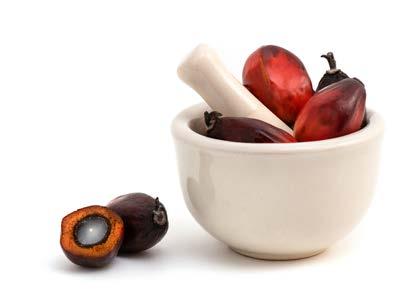

- “Oleochemical producers are faced with changing market demands. Within fatty acid production, companies need to explore ways to stay agile, maximize the value of their feedstock and make their production more profitable and sustainable. We are excited to be the first to offer a biosolutions for pre-splitting solution at-scale to fatty acid producers, that can deliver more flexibility and improved economics,” says Hans Ole Klingenberg, Vice President, Ag & Industrial Biosolutions at Novozymes.
Industry standard is efficient but throughput is slow
Fatty acid is a building block for a wide range of industry products from lubricants to foods. In the first phase of producing fatty acid – the thermal fat splitting process – fats and vegetable oils (triglycerides) are converted into fatty acids and glycerol. This happens in a high-pressure, high temperature splitting tower. Although the standard process for thermal fat splitting is generally effective, throughput is slow, and a great deal of energy is needed. Conversion of triglycerides happens in three stages. The first stage is slow as water and fat mix. It is only in the second stage that most of the fat is split. By pre-splitting with Lipura® Split, fatty acid producers can accelerate the rate of reaction in the first stage and increase production capacity by up to 20%.
Palm Oil Today Africa | Jul-Sept 2023 42
REFINERY NEWS
Increased efficiency and less energy and water needed

Pre-splitting is a supplemental process that significantly increases efficiency in thermal splitting. Novozymes’ Lipura® Split – an enzyme biocatalyst – and water are added to any oil and fat feedstock in an existing stir tank and agitated prior to introducing the mix into a splitting tower.
The enzymatic pre-splitting reaction significantly reduces and, in some cases, even eliminates the initial stage of the thermal splitting reaction, thereby making the process more efficient by reducing the amount of energy required.
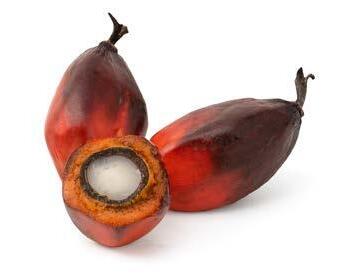
“Ultimately, our goal is to help fatty acid producers achieve a higher level of splitting and increase their capacity while reducing their use of energy and water. Our latest biosolution, Lipura® Split, makes this achievable at a minimal cost,” says Hans Ole Klingenberg, Vice President, Ag & Industrial Biosolutions at Novozymes.

About Novozymes
Novozymes is the world leader in biological solutions. Together with customers, partners, and the global community, we improve industrial performance while preserving the planet’s resources and helping build better lives. As the world’s largest provider of enzyme and microbial technologies, our bioinnovation enables higher agricultural yields, low-temperature washing, energyefficient production, renewable fuel, and many other benefits that we rely on today and in the future. We call it Rethink Tomorrow.
www.novozymes.com
Jul-Sept 2023 | Palm Oil Today Africa 43
Oil Palm and Deforestation: Malaysia Cannot Be Considered A ‘High-Risk’ Country
Another important factor in Malaysian exporters’ ability to meet the EUDR requirements comes in the form of the governmentmandated Malaysian Sustainable Palm Oil (MSPO) standard.
MSPO is now observed by 96 per cent of all plantations in Malaysia.
The MSPO provides an assurance to buyers and global consumers that palm oil can comply with stringent sustainability parameters to meet certified sustainable global demand.
This includes a ban on deforestation post-2019, a requirement for high conservation value, and environmental and social impact assessments prior to new planning.
The debate on the impact of EU Deforestation Regulation (EUDR) on the palm oil sector in Malaysia has been in the headlines for several months.
Political decisions in Brussels were made in a manner that is discriminatory against Malaysian exports, and there has been scant effort to listen to the concerns of small farmers.
The EUDR has now moved from the legislative stage to implementation. The focus of the Malaysian palm oil industry is now on the ground-level efforts of implementation and compliance with a costly and wide-ranging set of criteria.
The Malaysian Palm Oil Council (MPOC) will remain engaged with the EU authorities in the next 18 months before the EUDR is fully implemented.
The positive news is that the advancements in Malaysia’s palm oil sector, especially the large-scale plantations, mean that country’s sustainable palm oil supply chains have already met most of the EUDR’s criteria.
Palm oil uses significantly less land than soy, sunflower, or cattle, and is more land-efficient, and less environmentally damaging.
Importantly, MSPO is more inclusive and accessible to smallholders, who form the backbone of the oil palm industry in Malaysia.
Farming oil palm provides a source of sustainable income for small farmers, helping to reduce poverty, which is in line with the internationally agreed upon UN Sustainable Development Goals.
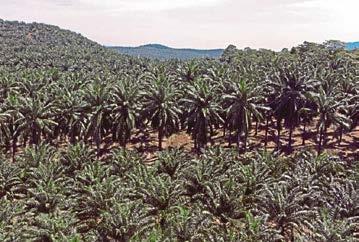
MSPO deserves recognition by EU authorities for the role it will play in ensuring compliance with EUDR and driving environmental standards more broadly.
Too often, the implementation of regulations (including EUDR) is arbitrary and therefore open to accusations of bias.
Recognition of standards such as MSPO that follow international benchmarks for certification and accreditation can change this negative perception.
The MSPO standard is published by Department of Standards Malaysia, which is affiliated to both the International Standards Organization and the International Accreditation Forum.

Palm Oil Today Africa | Jul-Sept 2023 44
SPECIAL INSIGHT
The debate on the impact of EU Deforestation Regulation (EUDR) on the palm oil sector in Malaysia has been in the headlines for several months. - BERNAMA pic
Certification is conducted by external accredited auditors, who follow technical standards that are international norms. It would be far simpler and fairer to endorse these systems that already meet the globally accepted technical yardstick.

The advent of MSPO is one part of the work the oil palm plantation sector and the government have undertaken to position Malaysia as a global leader in forest protection.
Malaysia’s forest cover is approximately 55 per cent, or 18.05 million hectares of the total land area, which is more than the 50 per cent commitment that was made at the Earth Summit in 1992.
The expansion of oil palm plantations has now slowed down and has even reversed, with the total planted area falling from 5.8 million ha to 5.67 million ha between 2017 and 2022. Malaysian companies are committing to meet sustainability targets and actively addressing ESG concerns.
This positive and internationally recognized progress on sustainability standards has not been reflected in the EUDR’s treatment of Malaysia.
Our concerns about the implementation period deserve to be addressed via significant engagement between the EU and Malaysia. These include the key question of small farmers.
The EUDR requirement for small farmers with more than four ha of land to provide geolocation ‘polygons’ is extremely burdensome.
Comments from EU officials such as small farmers simply “need to buy a smartphone” are disingenuous and demonstrate a lack of understanding of the challenges faced by rural communities in areas without reliable access to Internet service.
The livelihoods of more than 450,000 small farmers and their families are at stake; the discussion needs to be more understanding.
The final, and most important, challenges for the coming months are the implementation of the EU’s proposed criteria for creating a “high-risk” list of countries that, in its view, are linked to deforestation.
It is evident to any reasonable observer that Malaysia — and any subnational authority — cannot seriously be considered high risk. The data on deforestation and the impact of MSPO are clear evidence of this.
A high percentage of oil palm plantations since 1990 has been from land converted from other crops as farmers have switched to oil palm for higher yields and financial returns.
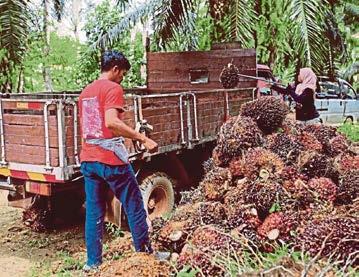
However, we cannot be naive enough to believe that facts and data are sufficient to win the day.
What is needed is transparency of input and criteria from the EU about how the high-risk designation is decided, and a public commitment that Malaysia will not be included.
There are promising signs, especially with visits of senior EU officials to Malaysia for face-to-face discussions. Hopefully, this will continue.
Diplomacy means engaging and acknowledging the progress that has been made. Malaysia trusts that its concerns will be addressed, and palm oil trade will continue without any further barriers.
Jul-Sept 2023 | Palm Oil Today Africa 45
The writer is chief executive officer, Malaysian Palm Oil Council
The Malaysian Palm Oil Council (MPOC) will remain engaged with the EU authorities in the next 18 months before the EUDR is fully implemented. - BERNAMA pic
Ensuring Sustainability in Edo State’s Palm Oil Development
Interview with Churchill Ebehitale Oboh, the Team Lead of Edo State Oil Palm Programme Independent Implementation Office (ESOPP IIO)

Professional Summary:
July 2019- Present
Position: Ag. Team Lead
Edo State Oil Palm Programme (Implementation Office) Governor’s Office, Edo State Government.
Churchill Ebehitale Oboh is a results-oriented environmental and agricultural expert with a strong focus on sustainable practices and environmental stewardship in the oil palm subsector. Demonstrated expertise in optimizing agricultural productivity while minimizing environmental impact. Proven ability to develop and implement innovative strategies to promote sustainable farming practices, biodiversity conservation, and community engagement. Adept at managing complex projects and collaborating with diverse stakeholders to achieve sustainable and profitable outcomes in the oil palm industry.
Environmental and Agricultural Expert | Oil Palm Subsector
• MSc. Safety Health and Environmental Management, University of South Wales, Cardiff, United Kingdom
• Bachelor of Science in Plant Science and Biotechnology (Environmental Plant-Science Option), University of Portharcourt, Rivers, Nigeria
Professional Certification / Body
• RSPO Lead Auditor / RSPO
• GradIOSH (Member) May 2014
• Project Management, May 2014. Seal Enterprises Cardiff, UK.
• Supervision and Team Leadership, July 2014. Seal Enterprises Cardiff, UK.
Palm Oil Today Africa | Jul-Sept 2023 46 IN THE HOT SEAT
Churchill Ebehitale Oboh
1. How does ESOPP IIO start on sustainabilityfocused initiatives? How does ESOPP IIO ensure that the cultivation of oil palm is sustainable and contributes to the livelihood of the Edo people?
Let me start by giving a brief about my state, Edo State, Nigeria. Edo State is strategically positioned, with the Tropical rainforest covering most of the area. It is also known for oil palm development in Nigeria because of its unique location within the oil palm belt and the home for the Nigerian Institute for Oil Palm Research (NIFOR) and some of the largest oil palm estates in Nigeria – Presco and Okomu, Saro Oil Palm, Agro-Allied and Processing and Resources Nigeria Limited accounting for about 120,000ha of cultivated oil palm.
In 2017, under the leadership of the Governor of Edo State, His Excellency, Mr. Godwin N. Obaseki, a Land Use and Land Cover Analysis (LULCA) was carried out by Proforest. Proforest is a non-profit group, that supports companies, governments, civil society, and other organizations to work towards the responsible production and sourcing of agricultural and forest commodities. Results from the analysis revealed that the State had about 120,000ha of degraded forest land, comprising grass and croplands. Interestingly, this identified area was within the Oil Palm belt of the State.
The area was further subjected to ground-truthed exercise and the process of acquiring them for plantation development began in line with the recommendations from the experts.
In 2018 the Edo State became the only sub-national to sign the Marrakesh Declaration for responsible oil palm production and forest management and became a partner of the Tropical Forest Alliance (TFA) amongst other 10 West and Central African countries to produce oil palm responsibly: Cameroon, Central African Republic, Côte d’Ivoire, Democratic Republic of Congo,
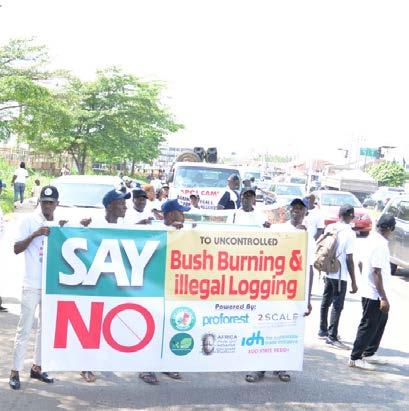
Edo State (Nigeria), Gabon, Ghana, Liberia, Republic of Congo and Sierra Leone. These countries account for 25% of the world’s tropical forests and 75% of Africa’s forests. Consequently, the Africa Palm Oil Initiative Multi-Stakeholders Platform was formed in the State.
Consequently, Edo State principles and actions for responsible oil palm production were developed with stakeholders. The Government adopted the Roundtable for Sustainable Palm Oil (RSPO) as the standard for oil palm development in the state.
Similarly, land acquisition and allotment processes will be comprehensive and carried out under the Edo state Free Prior and Informed Consent (FPIC) guidelines co-developed with Proforest.

Jul-Sept 2023 | Palm Oil Today Africa 47
The Edo State Oil Palm Programme Independent Implementation Office ensures that the cultivation of oil palm is sustainable and contributes to livelihood by adopting sustainable practices. As I have mentioned earlier, all oil palm companies in Edo State are mandated to reforest 10% of the cultivable area of their land holding and comply with RSPOs standards which include, preserving biodiversity, protecting forests and peatlands, protecting the HCV/HCS, reducing greenhouse gas emissions respect for workers right and safe working conditions and land rights, etc. As we speak, there is a bill before the Edo State House of Assembly that will legally back these sustainable practices in the sector. The ESOPP Investors are currently piloting it by implementing the RSPO New Planting Procedure (NPP).
As I also mentioned earlier, before the launching of the Edo State Oil Palm Programme (ESOPP), our technical partners had conducted LULCA which helped in ensuring responsible land use planning, as we speak the State now has a Forestry Commission and a new Forestry law that helps with protection, regeneration, and conversation of the forest assets of the state.
Similarly, we have adopted Free Prior and Informed Consent as a way of engaging local communities before the commencement of any investment in the sector. The State Governor has made it mandatory for small-holder inclusion in the development plan of our investors, as investors are to commit 5% of their land holdings as designated areas for a smallholder scheme. Moreso, the governor through the ESOPP IIO has also allocated 2,000 hectares to small-holder farmers in the state as a way of supporting them with access to land at no cost. To conclude, the ESOPP IIO is an independent Office created in partnership
between the private sector and government monitors to ensure compliance with these policies and laws by all parties.
2. One of ESSOP IIO’s functions is to promote zero deforestation. What are the campaigns and activities that have been taken concerning this?
As you may be aware ESOPP is the institutional home of the APOI now ASCI. Consequently, the PPR approach is the thematic pillar of ESOPP, PPR stands for Produce, Protect, and Rehabilitate. This means that whilst our producers produce oil palm and other tree crop commodities, they must protect high conservation value areas, restore degraded land, and promote reforestation. This helps to preserve biodiversity, protect watersheds, and mitigate the environmental impacts associated with oil palm cultivation. Through the APOI now ASCI platform, we have carried out several sensitizations, training on HCV/HCS, campaigns, and street walks to sensitize stakeholders on the need to avoid incessant bush burning and illegal felling of trees.
3. Recently, ESOPP IIO facilitated a meeting between the Africa Palm Oil Initiative (APOI) and the Africa Sustainable Commodities Initiative (ASCI) that highlighted the review of the Principles and Actions. Do share with us a little bit about this.
This is true, and it was a very significant meeting of stakeholders in the tree/food crop and forestry sector in the state as participants drawn from both the national level, state, and local levels were present at the meeting. Just to give a bit of background, in the year 2022 at the United Nations Climate Change Conference held in Sharm El Sheikh, Egypt, leaders of 10 West and Central Africa Countries as earlier mentioned and the Former Honourable
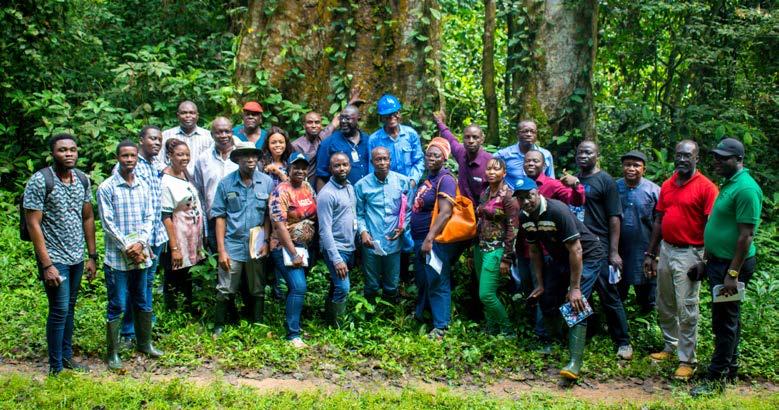
Palm Oil Today Africa | Jul-Sept 2023 48 IN THE HOT SEAT
Minister for Environment, Hon. Mohammed Abdullahi, signed the Africa Sustainable Commodities Initiative on behalf of Nigeria. Before the meeting and signing, the Marrakesh declaration previously signed was particularly focused on oil palm and forestry but then the leaders of these countries came together and said to themselves noting that in the landscape other commodities drive deforestation which should be produced sustainably not just oil palm, several consultations were done at national and regional levels where other commodities like cocoa and rubber were identified and they decided to review the earlier signed declaration and that is how we got the ASCI declaration. Similarly, principles and actions for responsible production of oil palm and forest management were drafted by stakeholders before the signing of the ASCI, these P&A were reviewed to include other commodities as well as discuss the sustainability of the MSP as the gains of the APOI now ASCI are enormous and needs to be sustained.
4. How does ESOPP IIO plan to help the smallholders boost their production and create awareness of sustainability?


The truth is there is a lot that can be done but in the area of awareness creation of sustainability, we are already doing it in some capacity through some of our partners, particularly the Roundtable for Sustainable Palm Oil (RSPO) whom on the 24th of October 2022 launched the RSPO Community Engagement and Outreach Programme which will run for about 24 months through its one privately sourced consultant. The goal is that after the program, our small-holder farmers and communities will have the needed information on how to boost their production by producing sustainably and general awareness of good farming practices. But I must admit that a lot more can and should be done.
5. What does Nigeria lack to be a leading palm oil producer? How is Nigeria addressing these gaps now?
Well, I will like to say that Nigeria has all it takes to be a leading palm oil producer, currently, we are at number 5. However, there are several factors that we currently lack or are in short supply, these factors range from quality of planting materials, perfect climatic conditions, technology, access to finance for small-holder farmers that make up about 70% of production, and good mills to prevent losses during milling. In reality one of the things, we currently lack in my opinion is quality planting material which is key and adequate funding in research to produce quality seeds that are adaptive to our climatic conditions, etc. is very vital to be able to have quality planting materials and technology to boost yields, and ensure optimal extraction rates during milling. Additionally, there is also a critical factor which is the climatic conditions as an effect of climate change i.e., rainfall. If these earlier factors mentioned are addressed then we will take back our glory in the sector.
Jul-Sept 2023 | Palm Oil Today Africa 49
Overview on Africa’s Palm Oil Industry with Alphonsus Inyang, the President of The National Palm Produce Association of Nigeria (NPPAN)
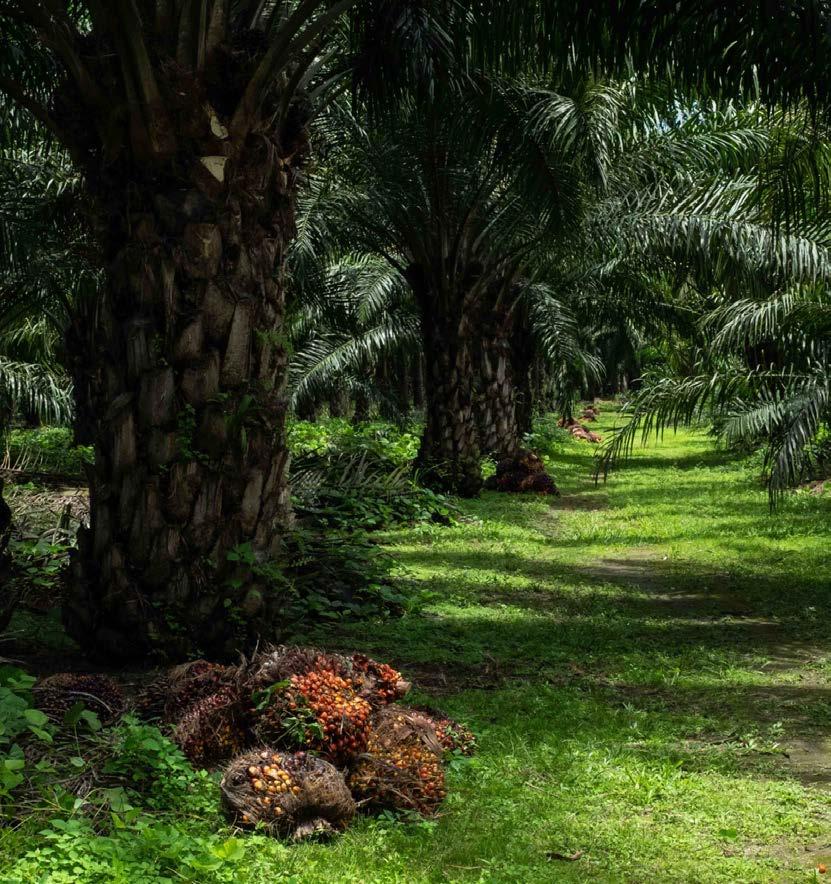
Palm Oil Today Africa | Jul-Sept 2023 50 COVER STORY
1. What are the current trends or situations in Africa’s palm oil industry that you would like to share with us?
Nigeria was missing 50% of the world’s palm oil production in the 50s and early 60s. As of now, Nigeria is producing jobs less than 1.5 million per annum and has the fifth largest reserves in the world government. Government efforts and policies over the years have not yielded a maximal increase in production. We forecast that 80% of the production is by smallholder farmers, while the big plantation owners will be as small as about 20%. We are expecting much investment in planting materials, also in equipment fabrication, and climates smart processing technologies to be able to increase production. Essentially, hybrid planting materials are needed in Africa specifically in Nigeria. This is important for smallholders to produce more.
We are currently importing 50% of what we consume in Nigeria. We believe that our program of one house of 20 palm trees is a very ambitious program that targeted planting at least 250,000 hectares a year commencing 2023. We are looking at 7.5 million households targeted over four years to 2027. In doing this, we believe that production will be more than doubled every year and more women and youth will be gainfully employed. Plus, more households and rural communities will be empowered economically. This is to improve the lives and livelihood. We are targeting households, with one household planting 20 palm trees. This will also help the environment because the palm trees planted around the rural houses will help to conserve the environment and prevent wild winds from blowing away the rural houses of the smallholder farmers. At the same time, we also empower them economically. We’re targeting rural households. We are calling on development partners and funders of oil palm products to work with us to make seedlings available for rural farmers and to increase yield to produce and analyze sustainably for rural households.

2. Could you elaborate a little bit on NPPAN’s background?
The National Palm Produce Association of Nigeria (NPPAN) as an Association was registered with the Corporate Affairs Commission (CAC) on the 22nd of May, 1995 with certificate number 271,945.
The Association is an umbrella body that would cater to all including the palm tree business, from nursery development, cultivation, production, sale, marketing, research, development, etc. It is the premier association for all smallholders, oil palm farmers, researchers, licensed buying agents, equipment fabricators, and marketers of palm oil.

Jul-Sept 2023 | Palm Oil Today Africa 51
3. What is Africa’s potential market that you can foresee?
Currently, Nigeria’s market share produces about 1.4 million tons per year. We are looking at it now between 2022 and 2027. We should be able to produce a minimum of 7 million tonnes per year which we can distribute to these households an estimated 250,000 hectares per year. That’s what we’re targeting
We need planting materials, training, and logistical support because distributing the planting materials will require a lot of logistical supplies. Thus, those are the areas we need collaboration with the plantation companies and development partners and logistical support.


4. A little bit of advice to Africa’s industry players?
Big plantation owners should look at palm oil as a cultural crop. In Nigeria, we see it as a gift from God to us and that we need to turn it into business. They should treat the smallholders as partners as this is our culture, tradition, and crop. Smallholder farmers should be treated by the big players as partners in progress and not as servants. Thus, whatever our growers’ agreement, there should be a win-win basis, knowing fully well that the land originally belongs to the people. They own the land, therefore whatever is going to be planted on the land be it the interests, wellbeing, and the welfare of the land owners, it should be taken into high consideration. It’s not all about profits.
I see Africa as the future upon us yet we have the history. We have lagged that we see Africa as leading the new renaissance for increasing production and it may not happen now. This is going to happen. We have many things that speak in our favor, a growing population of arable land, free flow of water, and less of natural disasters.
Palm Oil Today Africa | Jul-Sept 2023 52 COVER STORY

Joint Press Statement
The European Commission, Indonesia, and Malaysia Agree to Set up a Joint Task Force to Strengthen the Cooperation for the Implementation of Eu’s Deforestation Regulation
Kuala Lumpur, 29 June 2023, A mission jointly led by YAB Dato’ Sri Haji Fadillah bin Haji Yusof, Deputy Prime Minister and Minister of Plantation and Commodities of Malaysia, and H.E. Airlangga Hartarto, Coordinating Minister for Economic Affairs of the Republic of Indonesia, facilitated by the Council of Palm Oil Producing Countries (CPOPC), was conducted to meet with the political leaders of the European Union (EU) in Brussels at the end of May. In the meetings, both ministers expressed concerns with the newly legislated EU Deforestation Regulation (EUDR) and reiterated the importance of commodities, particularly palm oil, to the economy and the well-being of its people in both countries in particular toward smallholders
The European Commission underlined that its policies respond to common international commitments. The main objective would be to ensure that Europe would not drive global deforestation through its own consumption. Moreover, the EU reassured the producing countries that they would continue to be engaged during the whole process. Executive Vice President for the European Green Deal, Frans Timmermans, and the Commissioner for the Environment, Oceans, and Fisheries, Virginijus Sinkevičius agreed to the establishment of a consultative engagement process with both Indonesia and Malaysia to discuss ways and practical means of the implementation of EUDR.
As a follow-up to the Joint Mission, Dr Florika Fink-Hooijer, Director-General for the Environment of the European Commission visited Indonesia and Malaysia on 26 - 28 June 2023. Dr Florika Fink-Hooijer met with Mdm. Musdhalifah Mahmud, Deputy Minister for Food and Agribusiness, Coordinating Ministry for Economic Affairs, the Republic of Indonesia, and representatives of the Government of Indonesia on 27 June 2023, and YAB Dato’ Sri Haji Fadillah bin Haji Yusof, Deputy Prime Minister and Minister of Plantation and Commodities of
Malaysia, and representatives of the Government of Malaysia on 28 June 2023.
The meetings resulted in the agreement to establish a Joint Task Force comprising representatives from the governments and relevant stakeholders from both countries, including relevant commodities associations, smallholders, workers associations, and civil society organizations, amongst others to enhance dialogue on supply chain traceability and transparency.
Indonesia and Malaysia agreed that this Joint Task Force with the European Commission will focus on the relevant commodities in both countries in particular palm oil, wood, rubber, coffee, and cocoa. When needed, matters may be addressed based on the country-specific approach in an inclusive and transparent manner under the framework of the Joint Task Force.
The Task Force will examine the situation for relevant commodities in Indonesia and Malaysia within the scope of the EUDR for the EU market.

All three partners will appoint a single point of entry and immediately discuss and conclude the TOR of the Joint Task Force. With regard to palm oil, the Secretariat of CPOPC will facilitate and coordinate with the respective officials in Indonesia and Malaysia, together with the Directorate-General for the Environment of the European Commission to ensure the progress and advancement of the Joint Task Force to achieve the desired outcomes and a win-win solution for the successful implementation of the regulation by all parties.

The first meeting of the Joint Task Force is scheduled for the first week of August.

Palm Oil Today Africa | Jul-Sept 2023 54
EVENTHIGHLIGHT NEWS
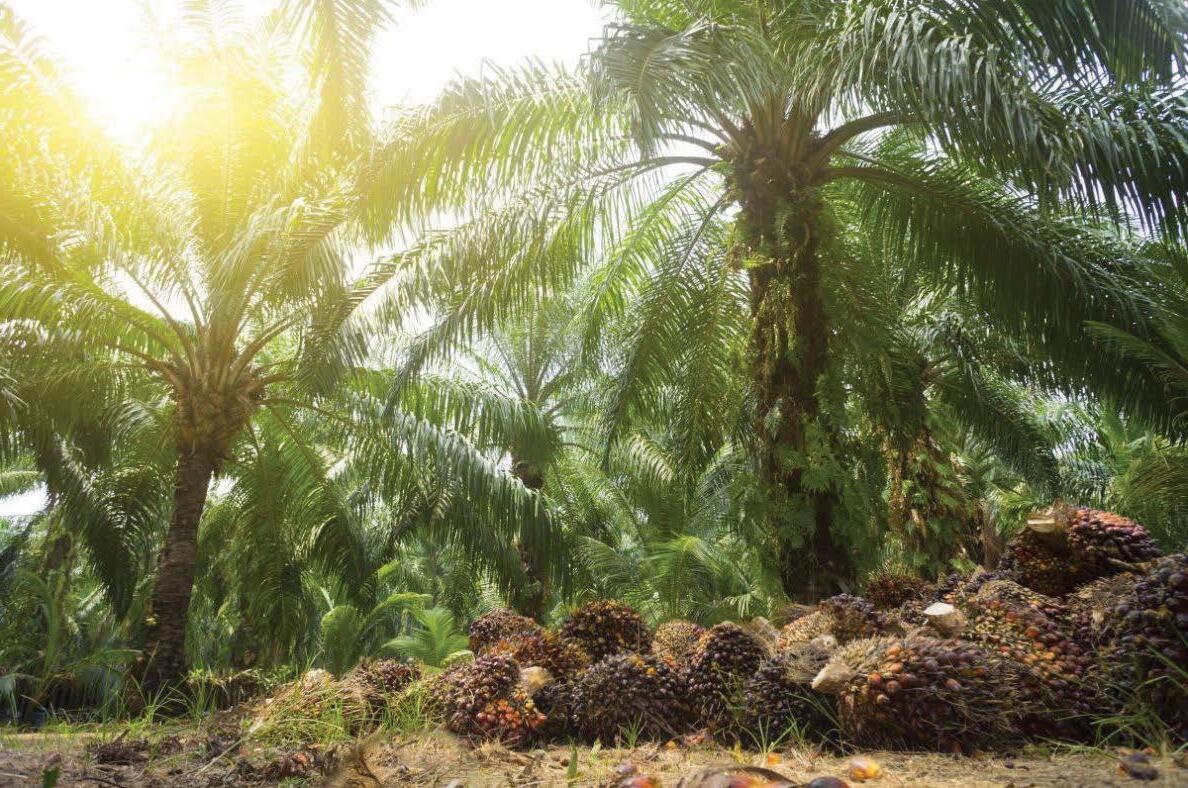










Advertisers Index
Advertisers
Alfa Laval Malaysia Sdn Bhd
DEVAC Agrinvest Africa 2023
4th Agribusiness Fair & Expo 2023
HA-US Santrfuj Teknolojileri SanTic Ltd Sti
Muar Ban Lee Engineering Sdn Bhd
National Plam Produce Association Of Nigeria
PALMEX Indonesia 2023
PALMEX Malaysia 2024
PALMEX Thailand 2023
YKL Engineering Sdn Bhd
Website
www.alfalaval.my
www.agrinvestafrica.com
www.agrinnovate.com.ng
www.hausworld.com
www.mbl.com
www.nppan.org
www.palmoilexpo.com
www.asiapalmoil.com
www.thaipalmoil.com
www.yklgroup.com.my
+62 812 7562 8281
africa@asiafireworks.com
info@zenithexhibitions.com

www.africapalmoil.com

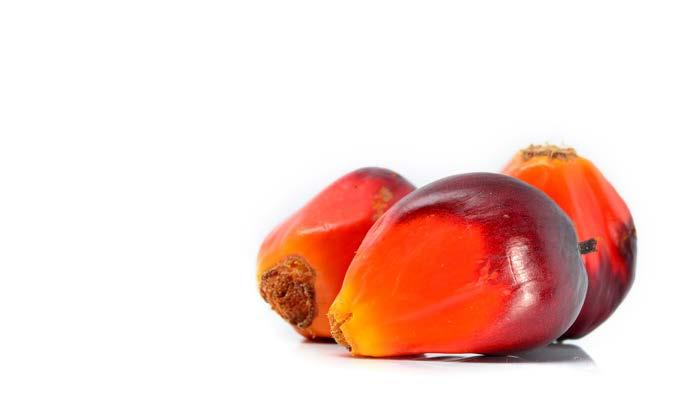
Palm Oil Today Africa | Jul-Sept 2023 56 To Advertise Or To Subscribe, Please Contact Us: International Enquiries: Africa Enquiries
Page 3 11 33 5 30-31 53 23 IBC 55 IFC

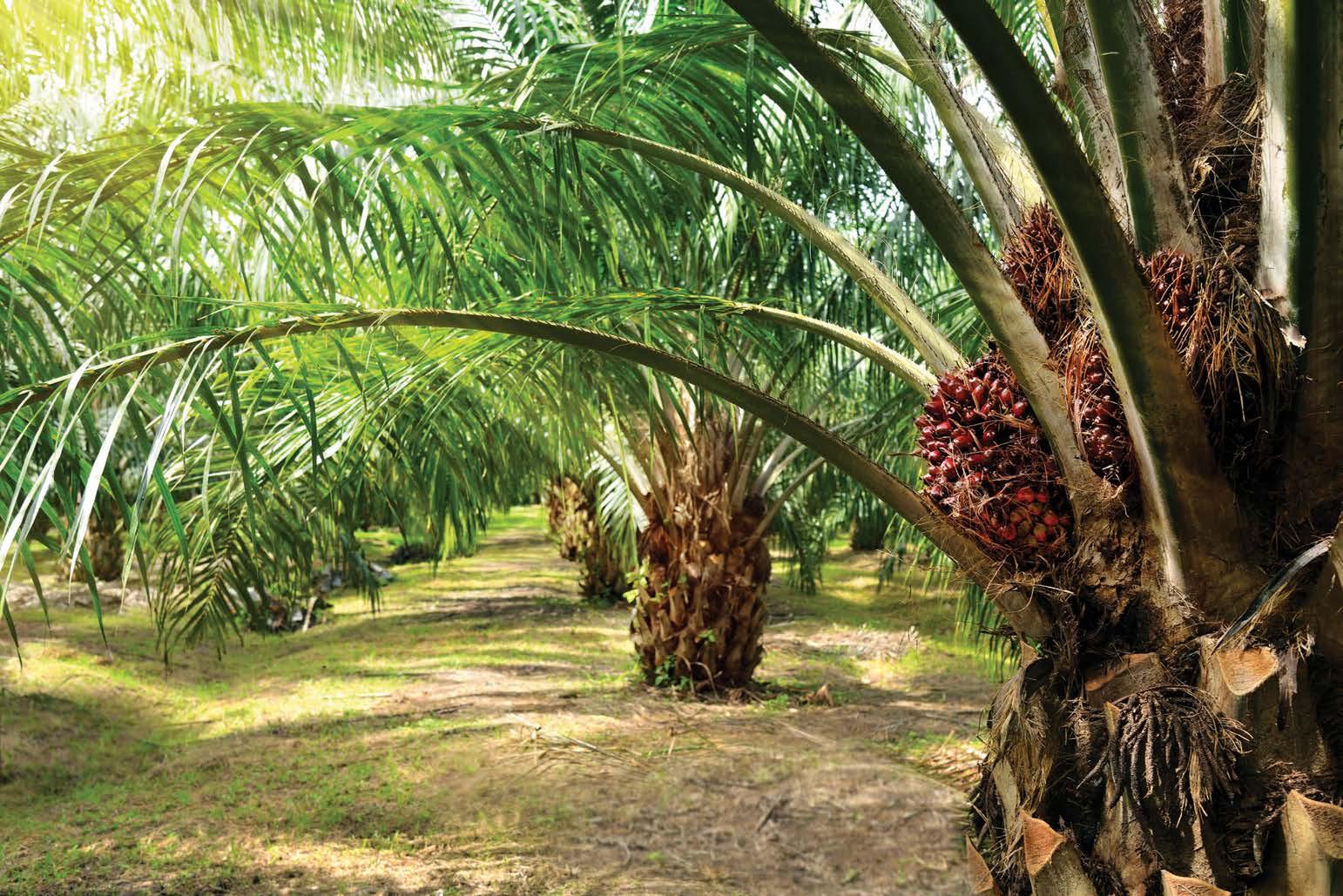




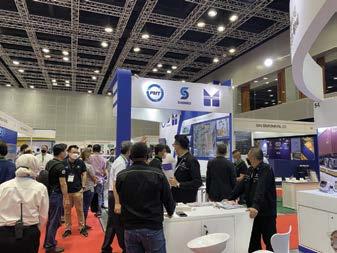




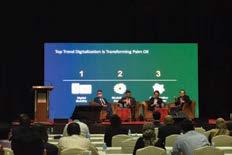




A Joint Publication by Fireworks Business Information (Singapore) & Zenith Media (Nigeria) African Countries Covered: Nigeria, Ivodry Coast, Conga, Kenya, Ghana, Cameroon
VOICE
WWW.AFRICAPALMOIL.COM
THE
OF AFRICA'S PALM OIL INDUSTRY
QUARTERLY PUBLICATIONS REACH OUT TO QUALIFIED LE ADERS & KEY DECISION MAKERS AFRICA CIRCULATIONS www.africapalmoil.com my@asiafbi.com +603-6151 9178 +6012-639 4271 Jointly Published by :
PALM OIL TODAYAFRICA










































































































































































































